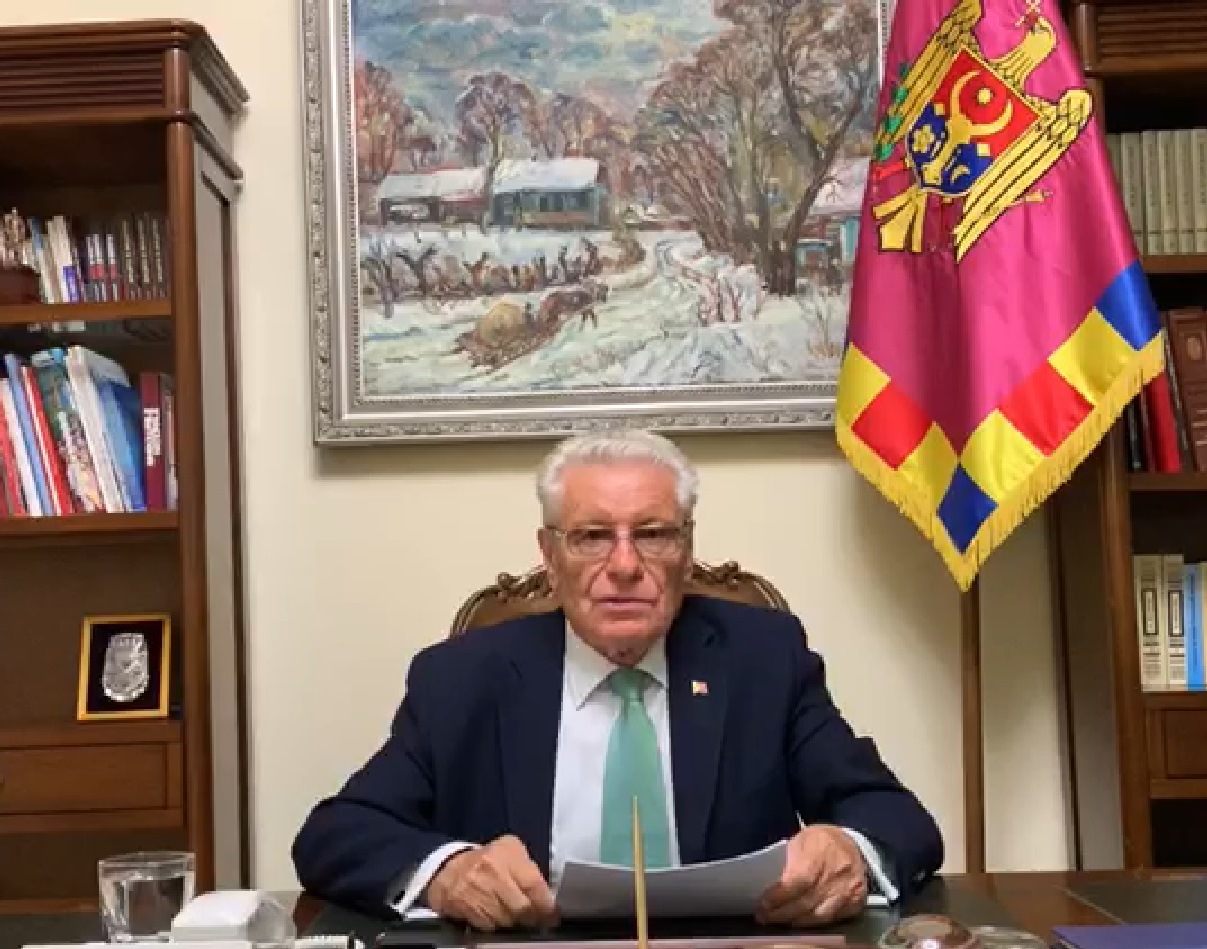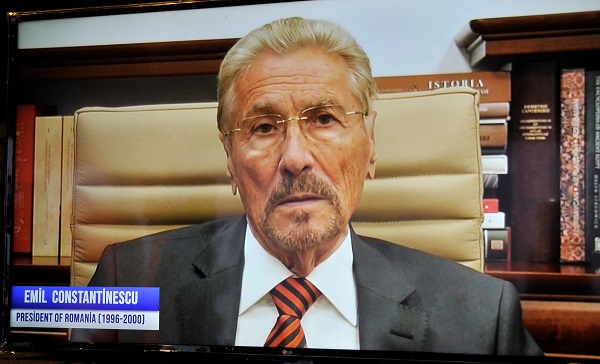23rd EURASIAN ECONOMIC SUMMIT
Please kindly visit our Youtube page to watch all the sessions of the 23rd Eurasian Economic Summit: https://www.youtube.com/results?search_query=marmara+grubu+vakf%C4%B1
A Success Story of Nearly a Quarter Century
23rd Eurasian Economic Summit, attended by 45 countries, was successfully held via satellite
23rd Eurasian Economic Summit opened with the message of İlham Aliyev
The 23rd Eurasia Economic Summit, which used Bakırköy Yunus Emre Cultural Center as a live broadcast studio, was watched via satellite in Asia, Europe, Africa, America and Australia.
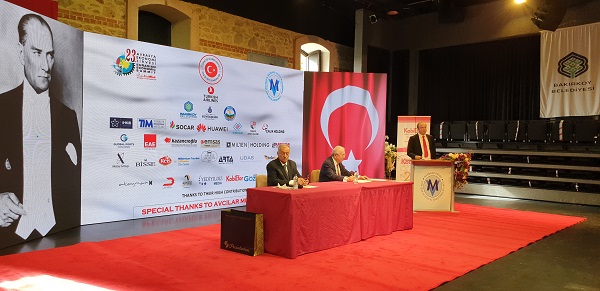
UNDER THE GUIDANCE OF BELT AND ROAD INITIATIVE
The Post-Coronavirus New World
Hello to the New World Economy!
At the 23rd Eurasian Economic Summit, organized by the Marmara Group Foundation in Istanbul on 7-8 October 2020, the Presidents, Presidents of Senate and Chairmen, State People, Academicians and Clergy and officials of international high-level organizations from 45 countries, came together with the title of New World after Coronavirus under the Guidance of Belt and Road Initiative.
Speakers at the 23rd Eurasian Economic Summit, which started to work with the message of the Azerbaijani President Ilham Aliyev, talked about the events in Azerbaijan in their statements. The speakers of the 23rd Eurasian Economic Summit, emphasizing the rightfulness of Azerbaijan, Armenia committing a war crime, and Armenia disregarding international law, condemned Armenia one by one. The speakers also stated that the Eurasian Economic Summits have an important place among the international well-known meetings in the world.
Despite this environment created by the coronavirus, the speakers, congratulating the Marmara Group Foundation's attention and care for continuity, also expressed their desire to come together in Istanbul at the 24th Eurasian Economic Summit to be held next year. President of Marmara Group Foundation Dr. Akkan Suver, stated in his speech which he brought to the agenda Turkey's rights in the Mediterranean; " Excluding Turkey from the Mediterranean is no different than exclude them from the West". Emphasizing the lawlessness of Armenia, Dr. Akkan Suver; "Turkey is altogether beside Azerbaijan," he added.
Stating the world's need for globalization, Dr. Akkan Suver; "The need for this fight against the epidemic has revealed the need for globalization, so we organized the 23rd Eurasian Economic Summit with the discourse of the New World After Coronavirus under the Guidance of Belt and Road Initiative, which is a peace and welfare project."
Speaking after Dr. Akkan Suver's opening speech, Azerbaijani Energy Minister Perviz Şahbazov read the message of Azerbaijani President Ilham Aliyev addressed to the participants of the 23rd Eurasian Economic Summit with the theme "Under the Guidance of Belt and Road Initiative ".
OPENING CEREMONY
.jpg)
Minister of Energy of Azerbaijan Pərviz Şahbazov joint the live broadcasts of the summit started his speech with the words of President of Azerbaijan Ilham Aliyev: “Brother Turkey is together with us today as always, relating to our land remain exile in the modern world. Turkey continues to support us in our land as is our right. I would like to thank my brother Recep Tayyip Erdogan and the people of Turkey for this unprecedented support that gives us great power.”
Ilham Aliyev stated in his message: "The summit has contributed to the sustainable development of Eurasia for many years". He said that social researches strengthened the region. Ilham Aliyev: “the summit is a sign of the unity of Azerbaijan and Turkey's strong ties and it has shed light on the post-pandemic world” he said. Stating that Eurasia should be united with even stronger strategies instead of being overwhelmed by negative developments, İlham Aliyev stated that he believes that the summit will create a strong motivation for the future and increase global cooperation.
- "State belongs to us, Karabakh belongs to Azerbaijan"
Ilham Aliyev stated that Azerbaijan stood out as an important power center in Eurasia for many years. He said that increased cooperation with Turkey started to succeed in every field. Ilham Aliyev told that Turkey's rising power manifested in the energy sector, and they follow Turkey's achievements with pride. Stating that the Nagorno-Karabakh issue, which is one of the most important problems of Azerbaijan, has gained importance, said, "Armenia has strengthened its destruction against our country by taking the opportunity of the world struggling with the pandemic. Armenia pursues a policy of terrorism and occupation. I declare once again that; Nagorno-Karabakh is an integral part of Azerbaijan, our land. " Saying that he believes that the ideas emerging at this meeting will be important for increasing cooperation, Ilham Aliyev wished the conference participants success.
At the 23rd Eurasian Economic Summit organized by the Marmara Group Foundation with the high-level participation of 45 countries, Avcılar Mayor Av. Turan Hançerli made the opening speech.
In his speech, Hançerli drew attention to the increase in the rate of unemployment and accordingly the poverty rate after the pandemic and said: “If we need to get some examples of how the world will be after the pandemic and how it should be; Unemployment, which emerged with scientific research in the pandemic process, affected the poor much more severely. We know that one of the most important issues that the world should focus on is income justice that becomes more and more important. I would like to underline that we have to take steps and move forward in the future regarding this important problem. Cooperation is essential for a fairer, more peaceful world" Mentioning that the pandemic period teaches the world new things in his speech, Hançerli emphasized the importance of cooperation in order to fight common problems and said: “Especially the pandemic showed new things to the whole world, maybe it opened a new horizon. We are always talking about the negative aspects of the pandemic. But the whole world fought in unison for the virus that started and spread all over the world. This proves how true the saying we are actually on the same boat is. I believe that this situation underscores the fact that the future should be established together and in peace.
Mustafa Gültepe, President of the Istanbul Ready-to-Wear and Apparel Exporters Association (İHKİB), stated that the supply chain in the fashion industry has changed, and that ready-to-wear brands have seen the disadvantages of remote procurement and long-term stocking by experiencing in the epidemic period.
Gültepe stated that European brands will supply their products from countries where they can return quickly and with the least stock and this new status will be a great advantage to Turkey. Reminding that they make almost 70 percent of their ready-to-wear exports to EU countries and the UK, Gültepe said, "We can increase our share in the EU market in the new period. On the other hand, due to a trade war with China, the United States has turned to Turkey. The USA is a huge market of 100 billion dollars in ready-to-wear. While our total ready-to-wear exports decreased by 8.7% in 9 months, our exports to the USA increased by 20%. We believe that we can turn the new situation into an opportunity and increase our exports to the USA to 1.5 billion dollars first and to 5 billion dollars in the medium term. "
Pointing out that collections should be prepared at shorter intervals for European brands, Gültepe said, "We must create capacity for US brands with new factories with a large production scale. As we said in the Foolproof Plan, which makes up our roadmap, we make Istanbul to fashion center and Anatolia to production.”
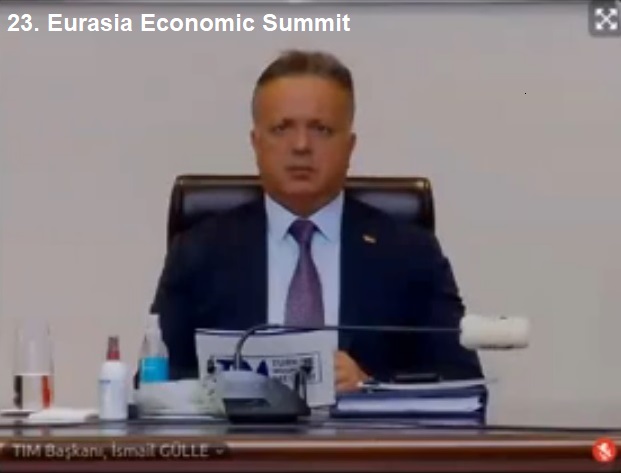
Turkey Exporters Assembly (TIM) Chairman Ismail Gülle, indicating logistics centers would become more important in exports of higher volume products in the new era, "In the new era, our country needs to improve the production capacity in order to meet increasing demand towards our country. The principles of sustainability should be adopted at the maximum level in the production of Turkey and focusing on the green economy, our exports should be documented in this area. "
Gülle, in her speech at the 23rd Eurasian Economic Summit organized online by the Marmara Group Foundation emphasized that the summit was held at a time when the world economy and world politics were experiencing very important transformations. Stating that a period in which production wheels stopped and trade contracted at an extraordinary scale all over the world, Gülle said, "Even in this difficult period, the Turkish exporter produced whatever the conditions of the day required, with its production capability and experience, and successfully exported to 207 countries."
Underlining that the transformation process that is currently ongoing in global supply chains have accelerated with the pandemic, Gülle said, "Especially the high dependence of developed countries on China in imports of industrial goods and the risks created by this situation trigger a new era in global trade."
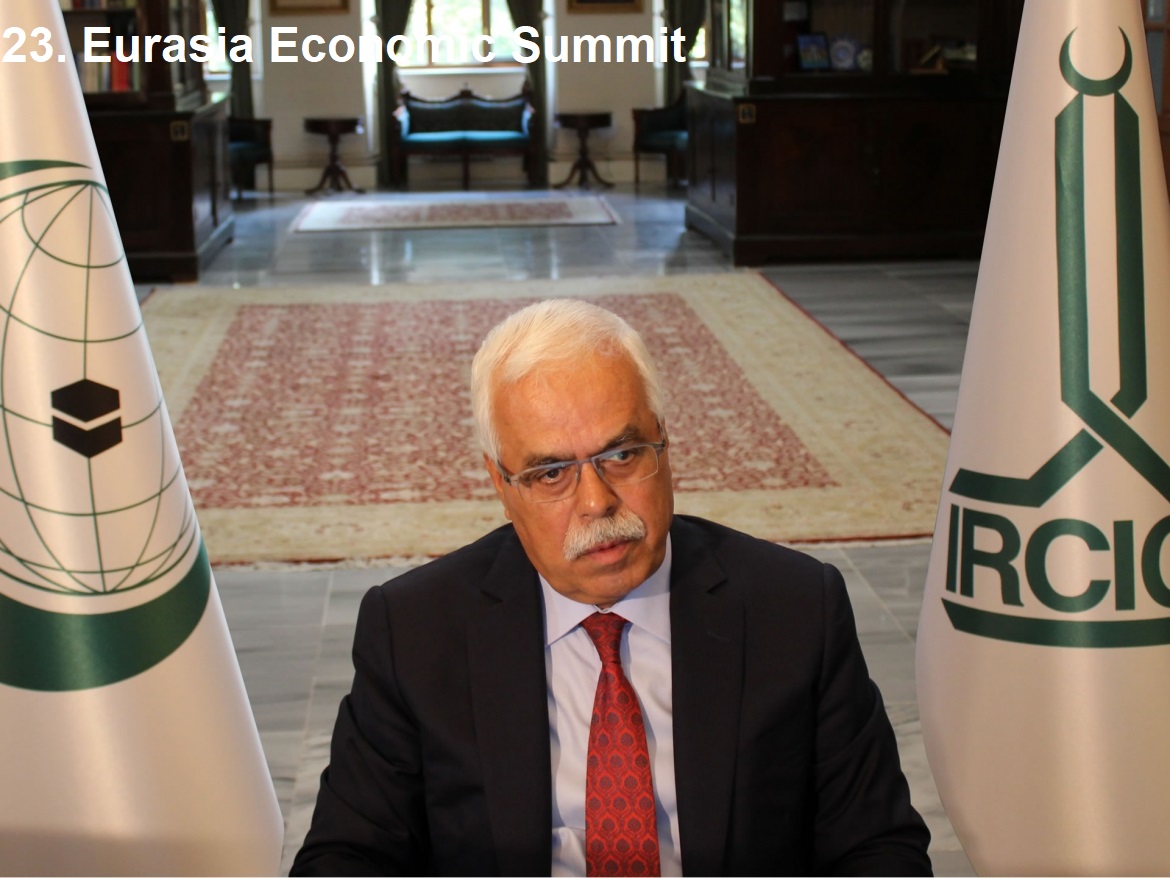
IRCICA Director-General Prof. Dr. Halit Eren in his speech; that the international system has gradually turned into a confrontational global competition environment within a multi-polar structure, international legal norms can be ignored and socio-economic problems that have not been solved since the global financial crisis in 2008 trigger tendencies such as discrimination, racism, xenophobia, and Islamophobia. He stated that global order and harmony face threats in such an environment. He explained that the coronavirus epidemic, which emerged at a time when the world societies were trying to cope with these problems, once again revealed the necessity of international cooperation. He explained that this epidemic, which has very different consequences than the previous ones, restricts social life to an unprecedented extent and almost completely ceases activity in almost all sectors, calls on all people with similar or different political and cultural identities to fight this crisis by hand in hand. Prof. Eren stated that the work of international organizations gains more importance in this environment.
.jpg)
Türksoy Secretary-General Düsen Kaseinov emphasized that "strengthening the economic solidarity between our countries will make a great contribution to the economy of the Turkic World". “Again, in order to ensure convergence in the Turkic World, cultural relations must be raised to a higher level. It is clear that the way to achieve this is through a strong economy," he said.
.jpg)
Secretary-General of BSEC, Asaf Hajıyev statted in his speech tahat: "The COVID-19 pandemic swept the world at a time when the prospects for many countries seemed very promising. At the beginning of 2020, countries were confidently following the path of economic growth, but all forecasts and indicators suddenly changed. The International Monetary Fund predicted an economic decline of 5% in 2020, substantially worse than during the global financial crisis in 2008-2009. According to the forecast of the International Labor Organization, the unemployed will increase in 2020 by about 2.5 million. The World Bank forecasts indicate that in 2020, there will be a 5.2 percent contraction in the global GDP - the deepest global recession within eight decades."
.jpg)
Secretary-General of OSCE PA George Tsereteli stated in his speech that: “The world after the pandemic will be different. But I intimately convene that's it is up to us the political, economic, and academic leaders or the world to determine how. We let our differences become more trench, we will lead the global human rights intuition to deteriorate further and our multilateral system continues to breakdown.” And continued his speech as: “I'm convinced that most of you would agree that the post-pandemic the world calls for greater dialogue to confront our toughest challenges together. The spirit of dialogue and cooperation has been at the heart of the work of the organization, security, and cooperation in Europe for 45 years now. But to fully realize our common vision of a peaceful world, we must fully use the platforms at our disposal and mobilize the political will to uphold our international commitments. This means that in the post-Covid-19 world, our governments must redouble efforts to be affecting accountable and inclusive democratic institutions.”
Governor of Istanbul Ali Yerlikaya stated that we have passed through a period when it is understood how important health is as whole humanity and said, "All production, industry, trade, economy, and culture industries have come to a halt. We have given up all the standards we have created and made concessions. While the economic indicators fluctuated in all countries, our country and Istanbul positively differentiated. "
Yerlikaya, recalling Turkey's human-oriented economy, solidarity and that differs from other countries in a spirit of solidarity, stated that "Thanks to City hospitals, we did not experience capacity problems. We deliver aid to other countries beyond to meet our own needs in the supply of medical materials. All treatments were given free and continue to be. There was no disconnection in the supply of goods and the needy were reached with solidarity. "
Speaking on behalf of foreign guests, President of Bosnia and Herzegovina, Marinko Cavara emphasized in his statements that “We see that the impact is immeasurable, and it has touched every pore of the society, the economy, the state. In the beginning, we saw COVID-19 as a health problem, then as an economic one, but as time goes on, we see that this is actually a general social problem, which affects our jobs, schools, vacations, travel, and in the same way changes our family and business gatherings. It changes our habits, I fear perhaps irreversibly.”
And continued his speech as: “While the wheel of history seems to have begun to turn backward, we must strive to move it forward. It is evident that our economies are slowing down and our GDPs are falling, and the current question is how to, until the end of the year, maintaining the economic development at the last year’s level. The latest voices from the World Health Organizations is that the pandemic will last for another two years. The question, then, is what will happen to the economy in the next year or in the years to come.”
.jpg)
Fashion Show, which has become a tradition for years and exhibited by IHKIB at the opening of each Summit, was held via satellite this year due to the pandemic. At the end of the opening session of the 23rd Eurasian Economic Summit, Designer Kadir Kılıç's Fashion Show presented a colorful show that was appreciated by the audience.
SESSION II
"Hello to the New World Economy and to the New World!"
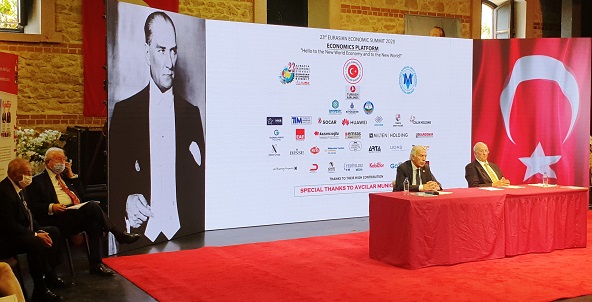
The second session moderated by Prof. Dr. Ersin Kalaycıoğlu and Turan Sarıgülle.
.jpg)
The Economic Session, named “Hello to the New World Economy and the New World”, started its work with the speeches of Guang Helen Yang, General Manager of SINOVAC Biotech, the famous organization of the People's Republic of China, which conducts research on Covid-19 vaccines. Guang Helen Yang stated in her speech that: According to the published results among different types of vaccine candidates around the world, CoronaVac™ shows a superior safety profile, in which the reported incidence rate of adverse reaction is significantly lower than others and no vaccine-related serious adverse reaction was reported, and most reactions were mild. 90-100% of volunteers who received CoronaVac™ an induced neutralizing antibody with different vaccination schedules and different level of dosages. These results provided a basis for the selection of vaccination dosage and schedule for our Phase III trial.”
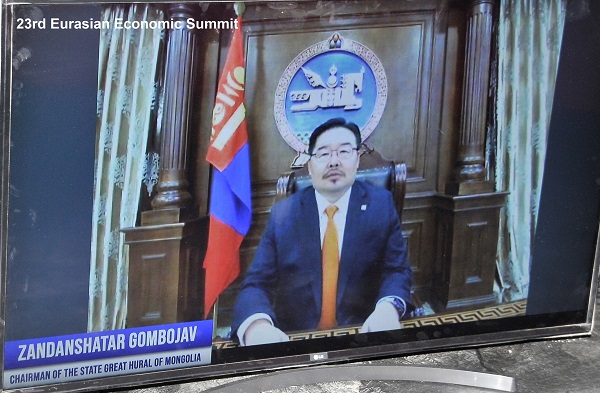
Chairman of the State Great Hural (Parliament) of Mongolia, Zandanshatar Gombojav, emphasized in his speech that: “The government of Mongolia has defined its policy to address the economic and social difficulties caused by the pandemic and undertaking its implementations. Within the framework of this policy, comprehensive measures are carried out in supporting our citizens and entities to ensure economic reliability, to support and increase exports, to reduce the demand and costs of budget financing while increasing financial resources.”
H.E. Zandanshatar Gombojav continues his speech as: “Mongolia's foreign relations will be consistent. We will prioritize foreign economic relations, diversify and increase exports, consistently protect the interests of foreign investors and pursue a policy to attract foreign investment in mega-projects and in leading economic sectors such as infrastructure, mining, energy, food, agriculture and tourism.”
.jpg)
Former Chancellor of Austria, Dr. Erhard Busek, made important suggestions during his speech: “I think we have to discuss what we need the real way for our life. What is really necessary to have a sustainable life and a sustainable situation? Therefore it's necessary to discuss what we can do in common. I think it is quite necessary for the future that we're concentrating on the problems. I think we can get enough work, how are we able to change the distribution of goods, the chances for life and so on... “
According to H.E. Busek, “And on the other side, we developed a lot of international organizations. But looking at the situation, international organizations are not anymore able to solve problems. We have to discuss this. I think we cannot withdraw from the world, only living in our region behind borders or behind fences or behind walls. I think we have to discuss it quite open in a very fair way, that's for sure necessary.”
Member of Parliament and Deputy Chair of European Integration Committee at the Albanian Parliament, H.E. Mrs. Senida Mesi stated that: “Green economies can create opportunities while encouraging sustainability and better correlation between people, economy and environment. But investing in green requires funding as it is more expensive and you can see the results in the long-term. Meanwhile, the need for economic recovery and employment is now. At the same time going “green” can cause lay-offs due to substituting human labor with computers and machinery, meanwhile now there is a need to increase labor-intensive jobs.”
Afterward H.E. Mesi made suggestions regarding the green economy: “We need to rebuild our economies, but better, more efficient and pro-environment. We need to finance sustainable solutions and these require analysis, and not simply act according to the crisis. Governments need to resolve crises and at the same time to create long-term solutions and National and Regional Objectives.”
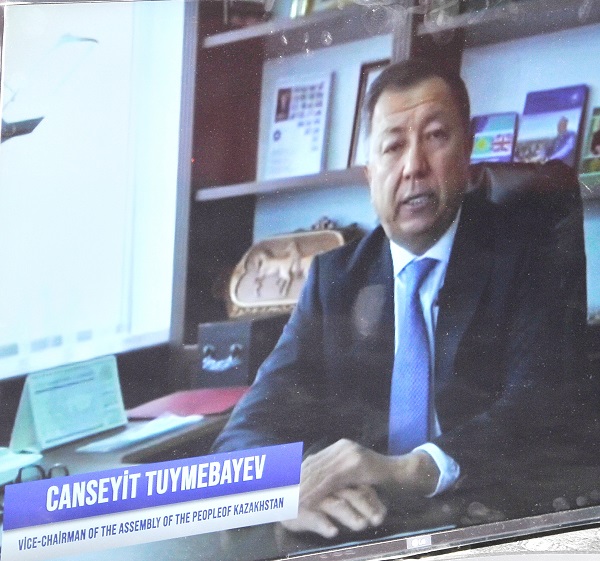
The Governor of Turkistan City, Zhanseit Tuimebayev, emphasized that “While Turkey investing $ 4 billion in Kazakhstan since its independence, more than $ 1 billion investment made in Turkey by Kazakhstan. Since we gained our independence in Kazakhstan, from development projects to education, from political relations to cultural cooperation in all areas we fell the support of brother Turkey. We were and will also continue to be always next to Turkey.” Besides, he stated that: “As deepens its cooperation with the countries of the Turkish world, Turkey will become stronger in their region. Likewise, it is a fact that Kazakhstan's focus on the dimension of the Turkic world in foreign policy will enable it to become a more important actor in Eurasia.”
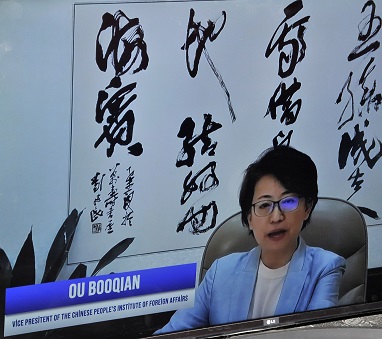
Remarks by Ambassador Ou Boqian, Vice President of the Chinese People’s Institute of Foreign Affairs at the 23rd Eurasian Economic Summit were as follows: “The fundamental differences between China and the US are not about power competition. China has no ambitions to seek hegemony, nor do we have any intention to challenge or replace the US position in the world. China focuses on its own development to provide a better life for its own people. It is neither about the competition of social systems. There should not be only one social system in the world. Various systems shall coexist peacefully and respect each other.” H.E. Boqian emphasized also that “Globalization will not stop its pace for the pandemic. Capital will flow following market rules instead of political orders. Globalization has entered into a new stage of 2.0 in which, in addition to the international enterprises and capital, every single individual has been involved as a player and beneficiary. Small and weak as an individual, they are large in numbers and strong in scale. The power of such a market is too tremendous to be ignored by capital.”
Federal Deputy of Brussels and Mayor of Saint-Josse and Federal MP of Belgium Emir Kır explained in his speech that “Faced with this situation at the local level, The municipality of Saint-Josse took a number of measures in favor of the residents as part of the social emergency plan and the fight against isolation. In this context, the studies include food and medicine shopping for those who have financial difficulties and the elderly in the field; distribution of protective fabric masks to all residents; food packages for the poorest; recycled computers for disadvantaged students or financial aid for artisans and municipal tenants.” He emphasized the importance of public services with these words: “But I am sure one thing is that my dear friends, this crisis has finally revealed to what extent public services and all social services are the last shield against poverty. It is these public services that keep society afloat, despite profound inequalities.”
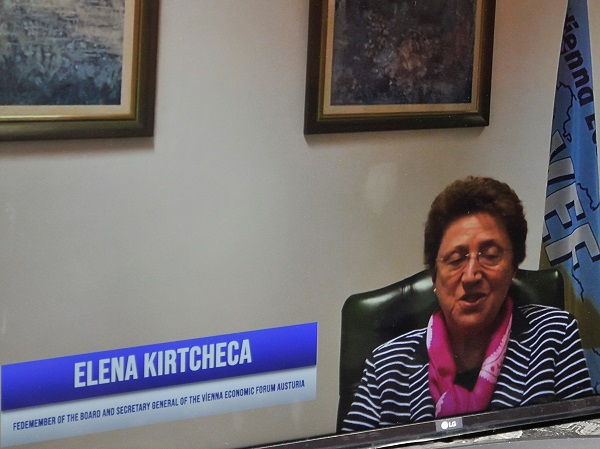
Secretary General and Member of the Board of Vienna Economic Forum Dr. Elena Kirtcheva emphasized the importance of regional cooperation in her speech: “Stronger regional cooperation in the future for the Transport sector and for many of the branches of the classic economy! While for instance E-Commerce, all the different Online Services, the Online Learning etc.-they are programmed for the global digital reality! What about the transportation of goods and also the manufacturing- they seem to be better prepared for the Post-pandemic future if we put the emphasis on regional cooperation and the securing of the delivery chains!”
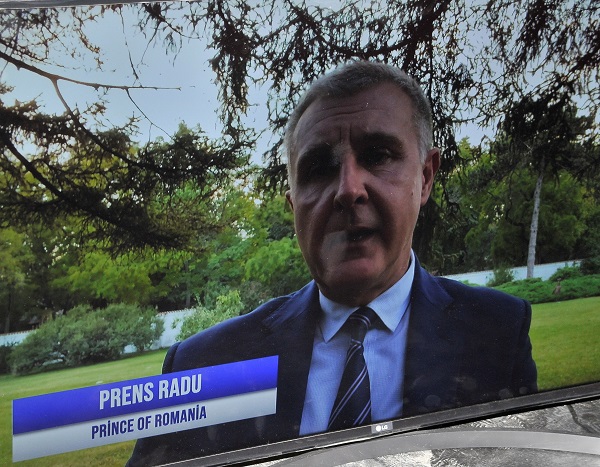
H.R.H. Prince Radu of Romania expressed His opinions on the pandemic as: “I think that the very strong difficulties that our nations face now because of the pandemic, somehow help us to be more together than before because we face the same type of threats and the same type of vulnerabilities. The economy of every single one of all countries suffered in the last 6 seven months. The whole nation, in every country of ours, had a very strong psychological challenge. We discovered that social activities are more important than they were before; the generosity of the citizens towards their friends, their family, or their neighbors is more important than it was before. International Organizations have indeed a role to play because the government is none of our countries is capable to solve alone the problems that the new crisis brought to our lives.”
H.E. Djoomart OTORBAEV, Prime Minister of the Kyrgyz Republic (2014-2015), stated that “In rich countries in the world, we are counting numbers. But if we look to the middle and low-income countries the situation there seems more dramatic. For example, in this year 100 loans in middle-income countries still have to pay a total of 113 billion dollars in debt service. Today I want to focus only on debt service, also because next week we will have an annual meeting of the international monetary fund and World Bank online and the G20 Finance Ministers Meeting. Turkey is a member of the G20. And I want to transfer to Turkey very important message as well as G20 countries. We have to suspend again the debt service payment for the poorest countries in the world. And they can spend this money to finance the budgets, to help to escape the Covid-19 epidemic, to spend the money for the poor ones, to healthcare, for lockdowns, slowing down of the economy, etc.”
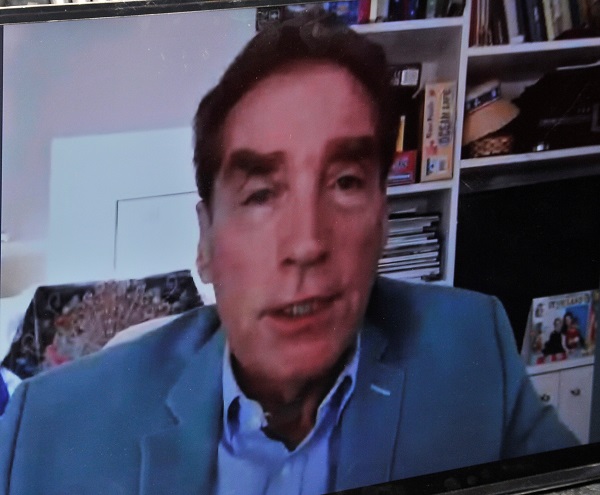
Former Prime Minister of Romania, H.E. Petre Roman, emphasized the importance of cooperation and stated that “The solution to our many problems, the only one, is cooperation. Multilateralism is today receding in almost every field: trade, management of crucial resources, local conflicts, and wars, etc. We have seen more and more political movements all over the world restricting multilateralism, imposing a national agenda, I would say a nationalistic agenda, imposing a new geostrategic game based on competition and it’s not only about economic competition, but it’s also just a competition on who is more powerful. Right now, I see in the near- and medium-term future that a bifurcation could happen. Either towards an unpredictable world in which catastrophic events related to, for instance, climate change, like floods, droughts, hurricanes, health problems, pandemics, and so forth, which could be as I said unsubdued and even impossible to assess properly. Or, we are capable of forge an orderly world under this growing uncertainty based on cooperation. We, the whole world, have right now an opportunity to enter a new era. A new era in which the spirit of cooperation and the spirit of innovation are intertwined and deliver a good and consistent response to different threats and I’m speaking about climate change and related to climate change, also the problems of global migration and food scarcity.”
Member of Parliament of Romania, H.E. Ionut Vulpescu stated in his speech that “I can guarantee you that a cultural response to the pandemic will have immediate and favorable economic consequences. As long as the economy reflects a domain of designing profit and welfare for our societies, creative industries, and artistic entrepreneurship still have a word to say in designing communities for which profit and welfare are expressions for cultural mentalities achieved through different priorities and sacrifices. We confront a simple and yet uncomfortable scenario: a global world deals with an unknown pandemic. How can cultural diplomacy improve the dialogue between states that have, more than ever, the need to share information, practices, and skills in overcoming a sanitary worldwide crisis? The only answer that I find suitable is by enhancing the culture of empathy and awareness and addressing solutions for soft power and cooperation between nations. Cultural diplomacy is a collective work of art: it is a matter of constructing and negotiating ideals for a global future. To the physical vulnerabilities that the pandemic revealed, we have to answer by a strong spiritual and mental culture of resilience, endurance, and progress. It is my faith that we will succeed in accommodating culture and economy in order to empower globalization as a human, moral, and tolerant world.”
First Deputy Secretary-General, Mrs. Ebru Barutçu Gokdenızler stated that “As the First Deputy Secretary-General of the BSEC PERMIS, it should not come as a surprise that I am one of those who believe that the scale is tipped in favor of multilateral cooperation, more globalization rather than less. We at PERMIS are a strong advocate of international and regional cooperation, as this is our raison d’etre. I believe that all we have witnessed and experienced since the outbreak of the Covid-19 crisis has made a very strong case for the need and urgency for more cooperation and coordination among States for an effective response to the pandemic. When it comes to the Black Sea, BSEC lies at the heart of our endeavors for regional economic cooperation in reaping the true potential of the region and serves as a platform today to strengthen our collaboration for economic recovery, sustainable progress and prosperity.”
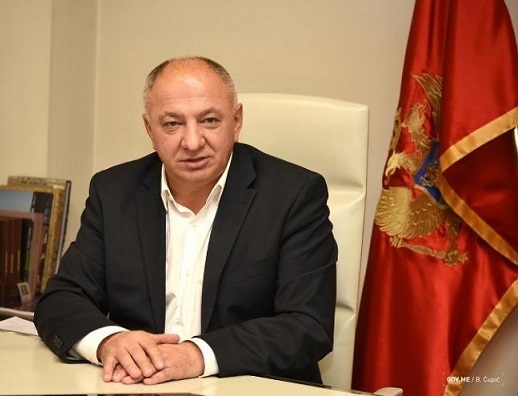
Deputy Prime Minister and Ambassador of Montenegro to Slovenia H.E. Vujica Lazovic expressed his opinions with these words: “Generally, we expect the digital economy to reduce inequalities both between individuals and between states. Unfortunately, it influenced these inequalities to increase. We know the last two decades or the first two decades of the 21st century we have a lot of figures who suggest that we have an increase in global inequalities. At the same time, 1st the two decades of the 21st century is the time period or period for the rapid growth of the digital economy? What is the conclusion? The digital economy didn't contribute to decreasing to reduce inequality at the global level. I hope to solve this problem. Invest in infrastructure in developing countries, invest in programming infrastructure invest in the education system, invest to develop startup business, invest in innovation etcetera…”
President of MEPEI, H.E. Mr. Flavius CABA-MARIA explained the importance of China in the global system with a citation: “According to Lin LIMIN, professor at the University of International Relations from China, the developing bipolarity between the US and China in the current world is different than the Cold War bipolarity between the US and USSR. This fact resides in different coordinates of this complex current bipolarity that are structured on the economy, trade, finance, technology, culture, development model, and values. I consider that the analysis of the development of the international order is interconnected with the assessment of the international strategic situation and diplomatic policymaking. In pursuing its general economic development goal, China is challenging the dominant position of the US. An open conflict should be avoided by relying on bilateral cooperation on specific areas of expertise, communication through diplomatic channels, and finding a common goal to achieve, for example, a common treatment for the new coronavirus.”
Director of Sichuan University American Studies Center, Dr. Changning CHEN, emphasized the change of the city of Chengdu during the years in his speech: “We live in a world that is more connected than ever, even if our priorities are limited to our immediate surroundings. So when I think about the topic of the Eurasian economy, I set out by firstly sharing my experiences about the city of Chengdu, where my family and I live. Chengdu is the capital city of Sichuan Province and is most famously renowned for its Giant Panda and hot pot. When comparing Chengdu to Beijing, Shanghai, and Guangzhou, many Chinese would have described Chengdu was a relatively less-developed city about 15 years ago. Chengdu is not adjacent to the sea, river, or border. Thus few people would link Chengdu’s reputation with foreign trade at that time. Chengdu’s history has witnessed a comfortable but relatively isolated society, mainly due to its geographical circumstances. As one of the most famous Chinese ancient poet LI Bai wrote, “It is tougher to take the Road to Chengdu than climb heaven.”
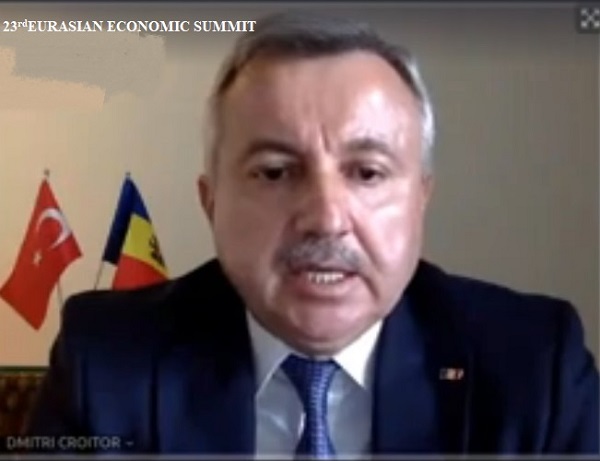
Ambassador of the Republic of Moldova to the Republic of Turkey, Dmitri Croitor, stated in his speech that “As you are very well aware, Turkey is a very special partner for the Republic of Moldova. The interaction between our states is deeply rooted in our history. Lately, the political and economic dialogue between our countries is gaining new momentum. Increasing the economic and investment flows between Moldova and Turkey is one of the main priorities of the Moldovan Government and the Moldovan Embassy. Our countries are Strategic Partners, we have a liberalized travel regime (travels between countries are possible only with the personal ID/Kimlik) and special quotas on exports/imports are in place, thanks to the existing bilateral Free trade agreement.
Moldova, as well as Turkey, is acknowledging the importance of global cooperation in order to overcome the current crisis provoked by Covid-19. The pandemic has shown that countries can’t rely and depend only on the biggest global suppliers. Rather, companies have to diversify the dislocation of their production facilities.”
Executive Director of Development Strategy Center in Uzbekistan, Eldor Tulyakov, stated in his speech that “Last year Uzbekistan joined Turkic Council and has become an active member of the organization. Since the beginning of the global spread of the pandemic Member States of the Turkic Council has established close cooperation in the fight against the pandemic. On 10th April 2020, the President of Uzbekistan together with other member states took part in an extraordinary online summit of the Turkic Council to discuss current issues and coordination of efforts in combating the spread of COVID-19 in the countries. Also, during the pandemic, Turkey has been active with humanitarian assistance directly and through the Turkic Council. Besides medical supplies, a group of Turkish doctors were sent to Uzbekistan to fight against the COVID-19 pandemic. Moreover, online seminars for Uzbek medical staff have been recently organized with leading experts from Turkey.”
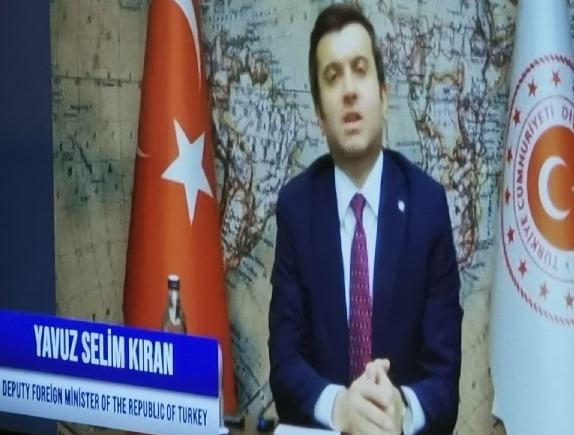
The last speaker of the Economy Platform was Turkey's Deputy Foreign Minister Yavuz Selim Kıran. Kıran, attended the 23rdEurasian Economic Summit organized online by the Marmara Group Foundation and made statements about Turkey's foreign policy. Kıran stated that "Today, Armenia is trying to hide its despair with unilateral actions at the expense of harming civilians, with its steps in the character of a rogue state. The realization of the expectation for its withdrawal will essentially be the best answer to questions about the history of this geography and how it will shape the world. "
Kıran, said further: "Our whole purpose is the transformation of Eurasia to humanity's common gain as a 'safe island'. That is our whole effort. That’s why we implement effectively our humanitarian foreign policy especially in this region. Currently, we are one of the 20 countries in the world, 17th country, according to GDP. But we are the 5th country in the world in terms of diplomatic representation. Currently, the number of countries with more representation from Turkey is 4, with 248 representatives on a world scale. we represent everywhere Turkey's active, visionary, and proactive foreign policy with our wide diplomatic missions, to produce common solutions to common issues of the world. On the other hand, Turkey, despite being the world's 17th largest economy relative to GDP, it is much more advanced in human development investments. We say again and again, 'The world is bigger than five.'
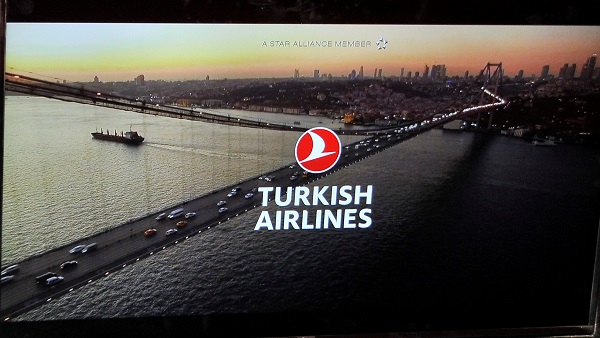
The Economics Platform ended with the Introduction Movie of Turkish Airlines.
SESSION III
"How will sustainable energy policies take shape in Eurasia in the long term after the coronavirus epidemic?"
The third session was moderated by Cafer Okray and Sezgin Bilgiç
The third session started with the introduction film of SOCAR.
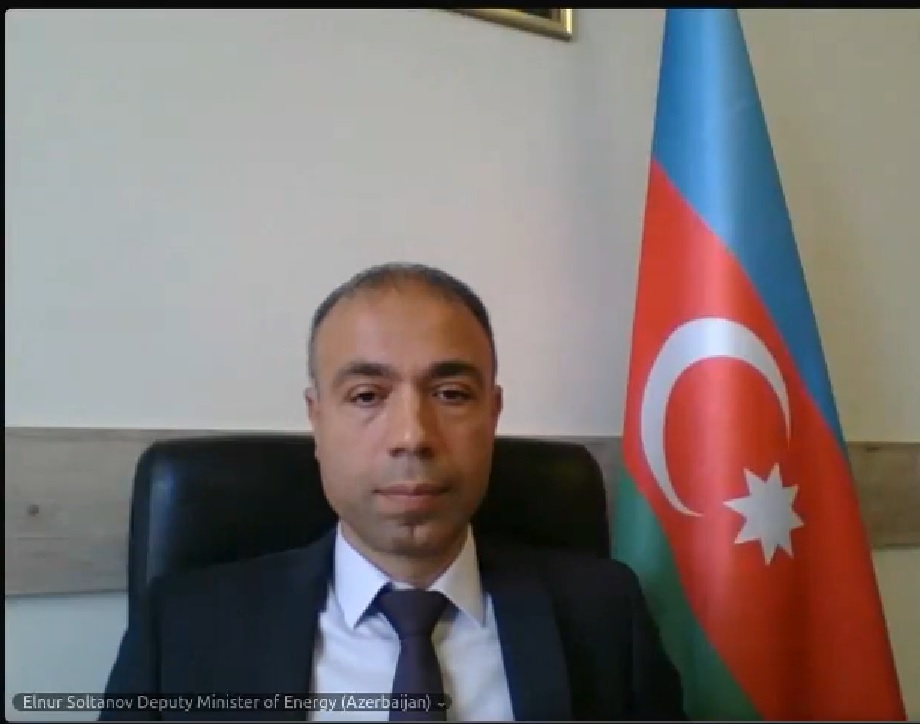
Elnur Soltanov, Deputy Minister of Energy of the Republic of Azerbaijan, took the floor firstly, on long-term sustainable energy policies in Eurasia after the coronavirus epidemic. Elnur Soltanov gave information about the Energy resources and investments of Azerbaijan.
Deputy Minister of Finance and Economy of Turkmenistan, Rovshen Nuryagdyyev, stated in his speech that “The oil refining the industry continues to implement innovative production-oriented projects and transport infrastructure facilities. A set of measures has been developed for the construction of diesel fuel hydrotreater, catalytic is dewaxing, fuel oil catalytic cracking, secondary gasoline hydrotreating, hydrogen production and others. Along with this, the technical and economic feasibility of organizing the production of benzene necessary for the production of polystyrene and rubbers are being studied. The construction of benzene extraction units will also, allow the Turkmen petrochemists to completely switch to the production of gasoline that meets Euro-5 standards, to establish the production of high-quality synthetic base oils (groups "two plus" and "three plus").”
.jpg)
The President of Lonon Energy Club, Mehmet Öğütçü emphasized in his speech that “The risk of energy security of demand is greater when political risk in energy-transporting countries are included within a measure of energy security of demand, i.e., risky external energy demand. The sharp decline in political stability and absence of violence or terrorism ratings in Ukraine and Turkey has increased the risk of security of energy demand in Azerbaijan, Kazakhstan, and Turkmenistan. The results highlight the importance of cooperation not only between the EU and the Caspian region, but also with energy transporting countries, such as Ukraine, Georgia, and Turkey. Alternatively, routes maybe found that bypass countries with low levels of political stability, such as through the Transcaspian Pipeline.”
Member of Parliament from South Africa, H.R.H. Zolani MKIVA, emphasized the importance of unity in the world in his speech: “We must come up with policies that talk to the human family, to the global family. We must ensure that each and every country plans in accordance with the things that have challenged us during this particular era. No country is an island. No people are on the island. And therefore for me, we need to have a basket of ideas that must present a case that begins to say; we need to have different scenarios in the economic front. We can't only have an economic system that is plugged in a form of a series. We need to have options. It must be an option so that when the other option fails, we go to the second contingency.”
.jpg)
Advisor of CEO of SOCAR, Murat Lecompte, emphasized in his speech that “Turkey We are on the eve of first gas to Europe. The TANAP pipeline opened in June of 2018 and has already provided more than 4.5 billion cubic meters of gas to Turkey. The European connection of TANAP to TAP was completed in December of last year. And now, TAP is ready to start. Line-fill gas is already in the pipeline. This energy infrastructure is important globally, for the energy security of both the region and Europe. And not only for energy security and supply diversification, but for political stability and sustainable development in the region. It is no coincidence that the attacks of the Armenian armed forces have intensified in the period before the completion of this massive Southern Gas Corridor project, when 98% of the construction of the last unfinished segment of the Corridor, the TAP gas pipeline, was completed.”
.jpg)
Chairman and Senior Partner of Penkov, Markov and Partners and Attorneys-at-law, Vladimir Penkov expressed his opinions on the Covid-19 Crisis: “We must prepare to live with Covid-19, as we do with many other infectious now and often more serious diseases in the world before there are a more effective treatment and a reliable vaccine. We should not wait for Covid-19 to pass and only then take action. It is necessary to have a public consensus on such measures that could effective, such as reasonable and supported social distance and without unnecessarily violating human and social needs and, above all, without instilling fear and panic in the population. It is necessary to learn from our bad experience so far and as a good student to avoid mistakes made in the beginning. There should be a special effort for clarifications and explanations against the already created fear and panic, which are blocking the initiative of the people and the normal life. This will lead to consensus and increase the effectiveness of the measures taken. They should be combined with financial support that should be easily absorbed by those in need.”
.jpg)
Alderman of the City of London Corporation and Chairman of the Turkish British Chamber of Commerce and Industry, Alderman Emma Edhem, stated in her speech that “Whilst the effects of Covid-19 is felt in both countries, the combination of these economic assets, proven adaptability and the proven resilience of both economies will be the route to recovery and further progress. Politically, the UK’s relationship with Turkey continues to be one of the closest of all Europeans. The two governments strongly support UK-Turkey business collaboration that allows both parties to benefit from the complementary and respective strengths of the two economies. Over the last three years both governments have been working closely to lay the preparations for future trade as the UK leaves the EU at the end of 2020. Perhaps it is here that both economies will focus, bringing new ways of working and new methods of resilience, exploring partnerships that will be mutually beneficial, moving out of the pandemic and back into its usual business confident self.”
.jpg)
Director of European Institute for Eurasian Dialogue (EIEAD), Leonardo Manzari, emphasized in his speech that “the European regulatory the framework has adopted, of course, the MARPOL convention and also has adopted the directive, which is stating procedure of processing and handling of LNG, just like other alternative fuels like hydrogen inside ports. We may see here a short operation supply chain graphic in favor of, of course, the use of by maritime transport purposes. And of course, we may see here that port storage of LNG is able to satisfy at the same time maritime demand, port demand, hinterland demand, both industrial and private/household consumption, which is, of course, explaining the reason why the Mediterranean basically is already having an intense network still to be completed, but the already serving an increasing market.”
.jpg)
President of Black Sea House Association, Dr. Dorin Popescu stated in his speech that “In the epic of the new geopolitical paradigm, the tendency to artificially formalize a confrontational theater that masks the authentic intentions of the great political actors have an essential role. Currently, the conflicts in Syria and in the eastern Mediterranean seems to be meeting the parties' consensus in order to be (officially) presented as a spaces for exploring the new geopolitical architecture: the magnitude of the conflicts, the US and the Russian Federation intervention on the ground in Syria, the new conjunctural/short term political alliances around Syria, the singular the stance of Turkey, the mix of local insurgency groups, France's Eastern Mediterranean policy, the EU ambitions to became a stronger global actor, etc., seem to configure a perfect geopolitical design for fakes classic theaters of operations.”
.jpg)
Director of Life Learning Academia, Mme. Marjetka Kastner stated in her speech that she made under the title “make the new change is our priority”: “Companies must understand the new realities. Last month we all read a lot of articles about the new age or how to go forward. I absolutely agree with some big economy names. In this speech, I‘ll just summarize the god lines. We should say goodbye to some activities and set our minds on the merging multi-polar world. This will be dominated but at least three large regions. America, the European Union, and China Central Asia. They increasingly take different approaches to economic policies, liberty, welfare, technology, and society. Middle-sized countries like Russia, Britain Australia, and Japan will struggle to find their place in the world while new coalitions will emerge.”
.jpg)
Mr. An Yuejun, Secretary-General of the CPAPD expressed his opinions on Covid-19 with these words: “This epidemic has brought us an important lesson: in the era of globalization, all countries are closely linked, and mankind is increasingly becoming a community of a shared future. However, it is regrettable that some countries, in order to shift their responsibility, politicize and label the epidemic, and form a gang to launch "indiscriminate prosecution" and "accountability" against China. These political manipulations are extremely dangerous and seriously undermine the good atmosphere for international cooperation against COVID-19. China was the first to be hit by the epidemic. Like other countries, it has not only been a victim but has also paid a huge price and sacrifice to delay the spread of the epidemic to the world. It deserves fair treatment. Solidarity and cooperation are the most powerful weapon for mankind to defeat the virus. As common victims of the disease, all countries should jointly resist words and deeds that are not conducive to international anti-epidemic cooperation, oppose the dissemination of any conspiracy theories and false information, put aside political differences and institutional disputes, put the focus on a joint response to the epidemic situation, promote the construction of a human health community, and make a contribution to international anti-epidemic cooperation together.”
.jpg)
Former Minister of Public Administration, H.E. Mahir Yağcılar listed what needs to be done to get rid of the Covid-19 outbreak as follows: “In my opinion, the scientific world benefit this experience of the epidemic to overcome all these tests, and Should establish private and joint research units, the world of science should work together with all its dimensions and work harder, solutions should be reached with versatile studies, the health system organization should be reconsidered, more investments should be made in both human resources and infrastructure in the field of health, international cooperation and sharing of information data should be increased, hygiene rules must be followed, and appropriate conditions must be created by state administrations. In this sense, the Government of Kosovo, as a new state, acts responsibly and in cooperation within the framework of international cooperation and struggle, as always. "
SESSION IV
"Terror and Regional Conflicts"
The fourth session was moderated by Ali Rıza Arslan and Att. Serhat Tabanca.
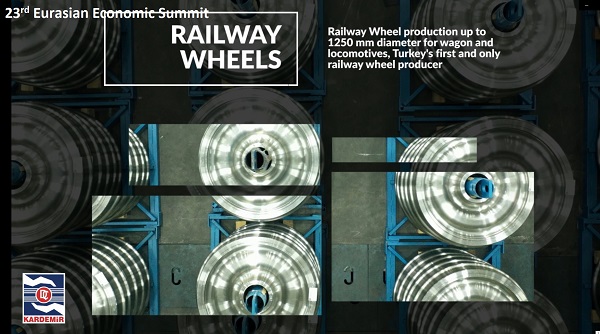
The fourth session started with the promotional film of KARDEMİR
.jpg)
Turkey's former Director of Religious Affairs Prof. Dr. Ali Bardakoğlu was the first speaker of the fourth session. Making a presentation on human relations and human values, Prof. Dr. Ali Bardakoğlu brought up our need for peace.
.jpg)
Director of Belarusian Institute for Strategic Research, Mr. Oleg Makarov stated in his speech that “We have seen how the pandemic changes the methods and mechanisms of communication. The reduced relevance of diplomatic instruments has intensified old conflicts. In other words, people stopped talking and started fighting. Even in business, we witness fierce competition to be first in the vaccine development, as well as the politicization of this issue. At the level of civil society, the need for social distancing has prohibited a confidential face-to-face dialogue. Today, independent research by leading think tanks show that the politicization of the fight against coronavirus can further divide the international community, creating prerequisites for internecine information wars. The consequences become noticeable in daily life in the countries that have chosen an alternative approach to the fight against COVID-19. In addition, we have seen that the right to freedom of movement and economic activity of the citizens of these countries was restricted. We should never become hostages to such a situation.”
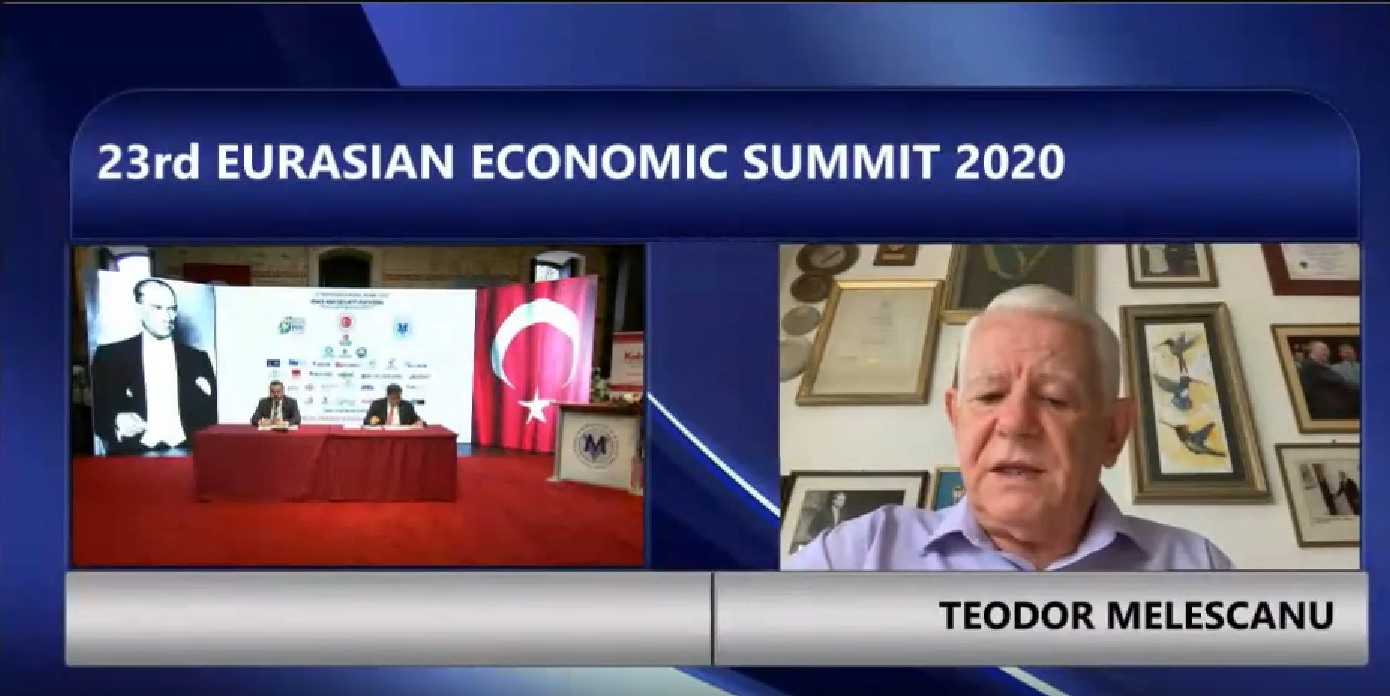
President of Romanian Senate, Former Minister of Foreign Affairs of Romania, Teodor Melescanu emphasized the importance of bilateral diplomacy in his speech: “Romania strongly worked on the idea, that Western Balkans represent a geo-strategic investment in the development of the economies, political and security for the European Union. The conclusions adopted by the General Affairs Council, in June 2019, confirmed this approach and expressed the opinion that in the fall of 2019 Albania and Northern Macedonia should be invited to start the negotiations for joining the EU. The policy of enlargement was also indicated to open new chapters for Serbia and Montenegro and offering a perspective for Bosnia and Herzegovina. I want to underline that on the issue of enlargement, Romania was extremely active in bilateral diplomacy. In our relations with these countries we had official visits and a direct dialogue at the level of presidents, prime ministers, and ministers for foreign affairs.”
.jpg)
Sheikh ul-Islam and Grand Mufti of the Caucasus, H.E. Allahshükür PASHAZADE emphasized in his speech that “It is of great value to unite the efforts of political, religious and public figures to prevent the conflicts that exist in the world and are accompanied by massacres. At the Second Baku Summit of World Religious Leaders, which was also attended by my dear brother Dr. Akkan Suver, we witnessed a valuable exchange of views on these issues. On the basis of our general conclusion, we oppose the calls of hatred, the use of religion for political purposes, as well as the falsification of religious and spiritual heritage, the change of origin, and so on. It was important that our common position on issues of universal importance was reflected in the Baku Declaration.”
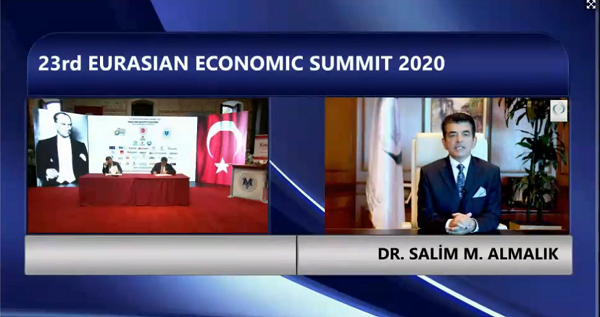
Director-General ICESCO, Dr. Salim M. Al-Malik, emphasized the importance of peace in his speech and stated that “Asia and Europe have witnessed conflict and war, and how it has affected the people and their livelihoods. War serves no real purpose. The only way countries can connect themselves with each other is through economic and social integration. The role of the Eurasian Economic Summit is pivotal as it brings together the two most powerful regions for closer integration and brings about next era of peace and security. Closing ranks between nations and moving together should be our priority. Peace is the ultimate ingredient for growth and prosperity. When World peace prevails, Security matters are no longer an issue. It is important that the subject of PEACE becomes part of the Education Curricula to teach our children its values.”
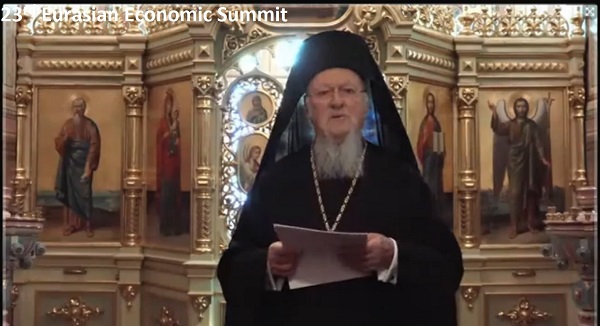
Ecumenical Patriarch Bartholomew stated in his speech that “This pandemic invites and challenges us to speak the language of reconciliation and solidarity. This crisis signifies the necessity of spiritual renewal, the need to return to the core values. In addition to searching for a vaccine and cure for Covid-19, we must reconsider our lives and reimagine our world from a fresh perspective. These are precisely the parameters within which we are convinced that religion can play a prominent and persuasive role in the sacred task of breaking down barriers among peoples and nations. True faith is a source of inspiration and encouragement, even when we are confronted with insurmountable obstacles and intractable problems. In this regard, the crisis that we face can prove to be a midwife of opportunity. It is up to us to make this happen. Let us transform the threat to an opportunity of mutual enrichment.”
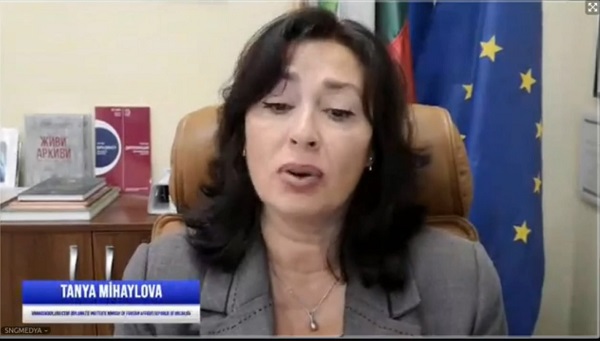
Ecumenical Patriarch Bartholomew stated in his speech that “This pandemic invites and challenges us to speak the language of reconciliation and solidarity. This crisis signifies the necessity of spiritual renewal, the need to return to the core values. In addition to searching for a vaccine and cure for Covid-19, we must reconsider our lives and reimagine our world from a fresh perspective. These are precisely the parameters within which we are convinced that religion can play a prominent and persuasive role in the sacred task of breaking down barriers among peoples and nations. True faith is a source of inspiration and encouragement, even when we are confronted with insurmountable obstacles and intractable problems. In this regard, the crisis that we face can prove to be a midwife of opportunity. It is up to us to make this happen. Let us transform the threat to an opportunity of mutual enrichment.”
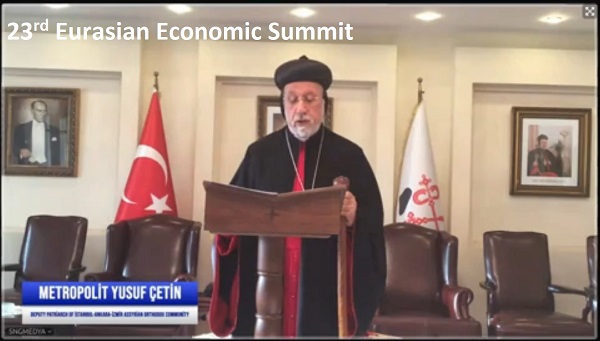
Istanbul Ankara and Izmir Syriac Orthodox Community Spiritual Leader and Deputy Patriarch Metropolitan Filüksinos Yusuf Çetin; “All religions, at least, the three heavenly religions of which most of us belong, are essentially revelation-based whole. These are more than just a set of high moral values, they are sacred structures. Therefore, they cannot be exchanged for any human purpose, no matter how high. If religions are to contribute to world peace, instead of touching their core structures, they should take ownership of these structures more and everyone's beliefs should be respected to the same extent.
Otherwise, in the name of establishing peace and stability, to remove all differences and distinctions, which are the richness and colors of humanity, to put everyone in the same way of life, to put everyone in the same idea and belief, has always had a reverse reaction in history. As humanity, we must be able to live together despite all our differences and distinctions. According to the Bible, this is God's will for humans too. For him, working towards the realization of equal freedom of opinion, belief, and conscience for everyone, as in real democracies, will undoubtedly be most beneficial for world peace.” said.
.jpg)
Turkey Assyrian Catholic Deputy Patriarch Orhan Çanlı emphasized that we cannot run away from the effects of coronavirus and stated that “In this process where we are experiencing the effects of the Corona Virus, we have once again understood how dependent we all humanity and societies are, by fighting a common destiny. In this difficult test, we had the opportunity to experience the need to respect each other, brotherhood and that belong to the same human family. We found ourselves scared and lost in an unexpected windstorm. We are all together in the same boat and no one can stay indifferent to the suffering of humanity by retreating into their own shell. This special situation caused by the Covid-19 epidemic negatively affected all of us and caused us to change our lifestyle.”
.png)
Former Minister of Defense of Austria and President of AIES, Dr. Werner Fasslabend emphasized the unsolved problems in the whole world and said: “If we look at this situation we have to be aware that there's a long list of challenges of the enormous crisis. Let’s start maybe with funerals. A country in the middle of a crisis of political crisis, one hand protests for freedom and political change; on the other hand also fighting for future independence. If we go further to the south we can see that the Balkans are still very unstable. If in 30 years after the start of fighting in this region we have unresolved problems. Not only in Bosnia and Kosovo but also in other states. If we go towards the east, there are still unsolved problems in Moldova, in Ukraine and its relationship with Russia, we have the Crimean Challenge. Big challenges not only for those countries but for the whole world.”
.jpg)
The Ambassador of Algeria to Ankara Mourad Adjabi state in his speech that “In the new era of globalization, the Covid-19 pandemic is a harsh reminder of what the world desperately needs during times of crisis. “Multilateral cooperation”, “Global solidarity” and “living together in peace”, to name but a few, are concepts that have gained huge momentum since the beginning of the outbreak. The world has indeed come to the realization that it would be delusional to attempt to defeat this global threat with unilateral responses.
The international community has no other alternative but to come together and undivided at national, regional, and international levels, to help respond efficiently to this health crisis, among other increasing numbers of global challenges. And speaking of the notion of “coming together”, I would like to take this opportunity to talk about the vital concept of “living together in peace”, which is based on the intrinsic desire of humanity to live and act together, united in differences and diversity, with a view to building a sustainable world of peace.”
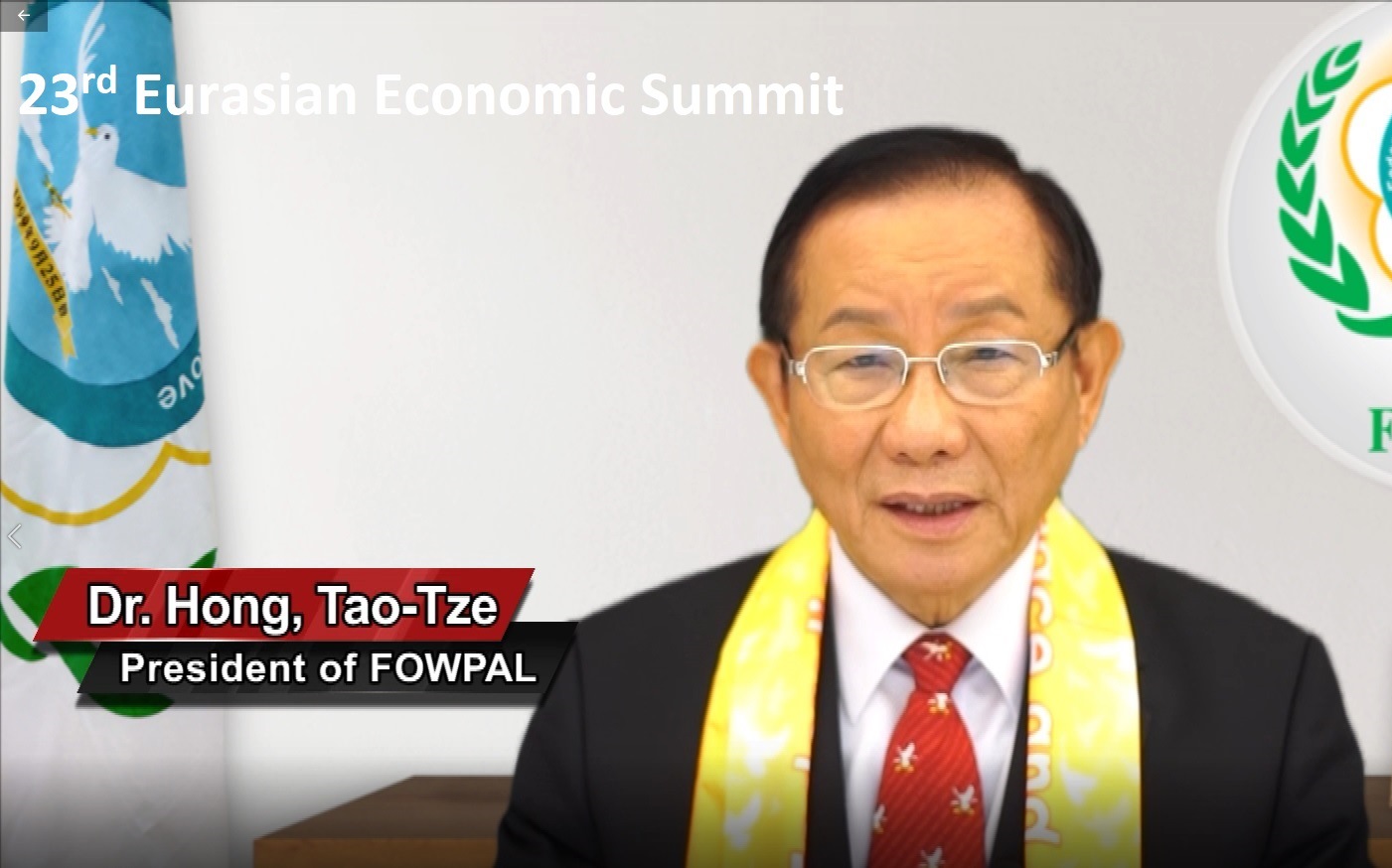
President of the Federation of World Peace and Love, Dr. Hong, Tao-Tze emphasized the importance of the conscience and stated that “If we can gain insights and unite ourselves with a conscience, then the post-pandemic world should be even better than it was before. A culture of peace with love and conscience will nurture mutual respect and understanding and help us work together for an inclusive society in which our needs are taken care of and human rights are protected. We need to protect our conscience, as conscience will reclaim true love. True love will calm the heart, and a tranquil heart will inspire wisdom and guide us to make right decisions. Humanity is now at a turning point. Each of us holds the key to determine the future, and the key to turning that key lies in our conscience. Today, we must unite ourselves. No matter where you are from or who you are, we are all leaders of the world. Let us apply our conscience to turn the key that can change the world so as to move toward a truly peaceful, rational, and safe future and create a more positive, prosperous, joyful, and happy society.”
SESSİON V
"An Ongoing Humanitarian Plight – Nagorno Karabakh"
.jpg)
The fifth session was moderated by Dr. Akkan Suver and Engin Köklüçınar.
.jpg)
Deputy Şamil Ayrım talked about the historical development of the Nagorno-Karabakh conflict in his speech: "The Nagorno-Karabakh problem, which has a long history, was an internal issue of the Soviet Union during the Soviet Union period. However, after the 1980s, we see that Armenia once again claimed rights in the mountainous part of the Azerbaijani Karabakh region. In the 1989 census, we also see that the population there changed in favor of Armenia. There are several reasons for this.
When you take look at the history, we see that Russia, had brought Armenians from the Ottoman and Iran in various periods and changed the demographic structure of Nagorno-Karabakh by settling in this region. In fact, why is Nagorno-Karabakh so important? Nagorno-Karabakh is truly a region of great strategic importance, important for both states. Geographically, it is like a watchtower for Iran, the Caucasus, Azerbaijan and Armenia. "
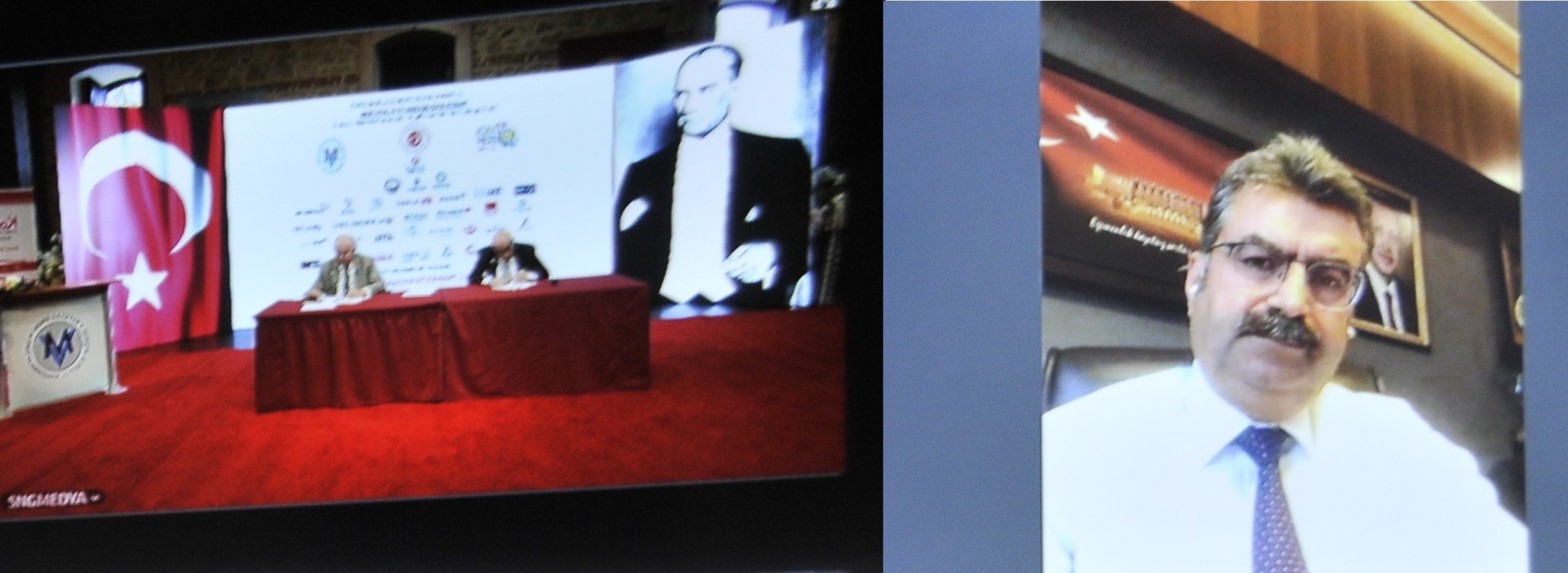
Ak Party Konya Deputy Orhan Erdem explained the support given by the Turkish Grand National Assembly to Azerbaijan on the Nagorno-Karabakh conflict: "Despite the UN Resolutions, there are 4 resolutions on this issue. These lands belong to Azerbaijan, and despite their decision to withdraw Armenia from here as soon as possible, these are the issues that have been dragged on.
The Turkish Grand National Assembly took decisions together with all parties on this issue and published declarations. Before this speech, I took a look at the history. There is a motion submitted by the True Path Party, Motherland Party, Welfare Party, and Social Democratic Party in 1992, which was submitted to the general assembly and accepted by all parties at that time. In 1993, there is a motion again submitted by the True Path Party, Social Democratic Party, Motherland Party, Welfare Party and Republican People's Party on this issue. On the 7th month of 2020, there is a statement attended by the AK Party-MHP group and the CHP. And as soon as the last parliament was opened, there was a motion and a declaration made by the AK Party, CHP, MHP and IYI Party two days before it even opened on September 28.”
.jpg)
IYI Party Erzurum Deputy Naci Cinisli mentioned the intervention of MINSK Group to the issue: “On the other hand, when we look at the MINSK decisions, there is an attitude in favor of the Armenians. The return of the occupied territories has been stated, but after a while it was envisaged to build a plebiscite in Karabakh. We find that there is almost not a single Azerbaijani Turk left in Karabakh for 30 years, and the outcome is clear.
The MINSK Group has actually been acting in this direction from the very beginning. We conclude that, with no good intentions, it is an effort to create a bottom-up plebiscite agenda.
We also attach great importance to Ilham Aliyev's statement that "we have no addressee". As you know, the UN General Council has 4 resolutions. If we look at these decisions, we can understand what this sentence means. In these decisions, there is no sentence such as the withdrawal of Armenia from the occupied territories. Russia did not use its veto power because of this sentence.”
Publishing Director at Causeur, Gil Mihaely evaluated the situation from the point of view of France: “France, co-president of the Minsk Group, the organization responsible for encouraging the search for a peaceful negotiated resolution to the conflict between Armenia and Azerbaijan has thus been approached many times by Baku in an effort to revive the diplomatic track. To no avail. To make matters worse, recent statements by French President Emmanuel Macron made the prospect of French mediation difficult to imagine and perhaps even impossible to put in place. Of course, France is not alone responsible for the deterioration of the situation, but the position of Paris is an example of the approach of the other countries of the Minsk Group but also of the international community in general. “
.jpg)
AK Party Şanlıurfa Deputy Assoc. Dr. Halil Özşavlı explained how the Emeni population was settled in the Karabakh region with documents:
I want to present you a document from the Russian archives. Turkish and Russian side by side. Soviet Armenia and Soviet Azerbaijan Communist party governors are writing a petition to Stalin. They say: We, the Muslim Turkish population here, drive the Azerbaijan Turks to Baku side, let them work in the fields of Baku, and bring the Armenians in other countries to the places that will be discharged from them. Stalin would approve of this in 1947. Then the Soviet Assembly will issue a decision and 200 thousand Azerbaijani Turks will be removed from Yerevan and its surroundings and exiled to Baku sides. This is not only done in 1947, when we look at the years, more than 1 million Muslim Turkish population in total will be driven to the opposite side.
This is how Armenia, which has a population of 2.5 million today, was created. When you look at the map, there is already a satellite state built to cut the terrestrial connection between Turkish communities. This dream of Russia started in the 1800s and it succeeded in the 1920s. In other words, he succeeded in establishing a small Christian state loyal to him among the Turkish nations.
.jpg)
CHP Artvin Deputy Uğur Bayraktutan stated that as the CHP, they sincerely support Azerbaijan. "The whole world should know that those who have an eye on the lands of others cannot protect their own lands. Everyone must respect the territorial integrity of other countries. One of the most important articles of brotherhood and international peace and world peace is to respect the land of its neighbor. If Armenia realizes this and withdraws its armed forces from Azerbaijani lands as soon as possible, it will take an important step towards peace, as stated by the Azerbaijani leader. Azerbaijan also has no other preconditions. Because they are fighting for their own land. They are even fighting for peace, even for reconciliation. Turkey supports Azerbaijan’s deserving cause.”
.jpg)
Azerbaijan Deputy, Head of Atatürk Cultural Center in Azerbaijan, Prof. Dr. Nizami Caferov stated that “Our President, Ilham Aliyev, has warned Armenia. He had repeatedly warned that they would regret if they did not give up their dirty work after the Tovuz incident. But apparently, this was not a lesson for them. This time, we teach them and we will. Today, the glorious Azerbaijani army is conducting a counter-offensive operation with great success and this operation continues, emphasizing that a spiritual rise is observed in all units of the Azerbaijani army. Prof. Dr. Nizami Caferov also underlined and added that the number of volunteers enrolled in the army is expressed in tens of thousands. This situation is an indicator of our people's loyalty to their state. The Nagorno-Karabakh problem is our national problem. The solution of the Nagorno-Karabakh conflict is our historical responsibility. We will resolve this in a way that restores historical justice. We will do this to restore the territorial integrity of Azerbaijan.”
.jpg)
Author and Journalist from the USA, Thomas Goltz shared his ideas on the current situation in Karabakh: For example, Karabakh is almost universally referred to as an Armenian ‘enclave’ inside Azerbaijan. It is not--it is a part of Azerbaijan. An enclave is a country or a part of a country completely surrounded by another country, like Lesotho in South Africa or the Vatican by Italy. In that Armenia has never had jurisdiction over Mountainous Karabakh is not ‘an Armenian enclave,’ even though status as being ‘an enclave’ evokes very emotional responses because it implies being ‘surrounded,’ which the point of the Armenians pushing this false status for Karabakh—and they have had great success in getting in the international media and negotiators to use that term. Also, unlike the rest of the panelists, I never say ‘Nagorno.’
‘Nagorno’ is a Russian term meaning ‘mountainous,’ and using the Russian term completely destroys understanding the geographic nature of the conflict. ‘Karabakh’ is an entity that includes the mountainous region (which became ‘Nagorno,’ or ‘Mountainous’ or ‘Upper’ Karabakh during Soviet times) as well as the valley region of Karabakh, meaning Fizuli, Jebrayil, Zengelan and elsewhere, and where most of the Azerbaijani refugees and IDPs come from.
.jpg)
French Researcher-Historian Maxime Gauin stated in his presentation that Azerbaijan's lands are under occupation. Therefore, he said that Azerbaijan's struggle to reclaim its lands should be seen as a legitimate defense. He also emphasized that Armenia's insistence on not complying with the accepted resolutions of the United Nations was in no way acceptable.
SESSİON VI
CONTEMPORARY SAGACIOUS PEOPLE
“New Power Balances in Globalization and Respect and Governance”
The Contemporary Sagacious People Session was moderated by Dr. Akkan Suver. In this Session, 16 Presidents, including two current, took the floor. 11th President of Turkey, Abdullah Gul took the floor as the first speaker.
11th President of Turkey Abdullah Gül stated in his speech that: “However, the time that has passed has shown us that globalization is also experiencing many problems within itself. Among these problems, two of them came to the fore in particular. One of them is that certain sections of society benefit from the blessings of globalization and others do not. So much so that this appeared a lot in the income distribution. Large income distribution differences started to disturb people's conscience and sense of justice. As a result, a new type of political style emerged in the world: Populist rhetoric, populist style of politics, and politics aimed at exploiting all these vulnerabilities. Secondly, it has also emerged that the opportunity and infrastructure to collectively deal with problems such as terrorism, transboundary crimes, organized crimes, and epidemics, which emerged with globalization and that countries are not able to solve alone, are very limited.
These two weaknesses became such that some of them started to express the idea that globalization has come to an end, globalization is over, the world will be closed again, borders and walls will be built again, and this will not go like this. Honestly, I do not agree. " And continued as follows “People will not give up on freedom after enjoying it, and globalization will not go back after it is tasted. Undoubtedly, I believe that we will face a world where great efforts will be made to prevent these problems and problems from repeating. Of course, there are lessons to be learned from this whole period. Politicians, statesmen, philosophers are talking about all these issues and as a result, the issues raised will return to politics and be implemented. In this way, we will reach a safer, more livable world together. I would like to especially highlight a couple of issues I highlighted them. "
Former President of Albania, H.E. Bujar Nishani stated in his speech that “History has been and remains the best teacher for all. The chapter of its text on civilization remains the most explicit part of the elaboration of historical developments, and, in particular, positive achievements and failures on the other hand. Civilization educates the soul, civilization softens the character, and knowledge boosts a person’s modesty while information makes a person far-sighted.A society, which communicates in a kind way and uses dialogue, is civilized and a smart society.
Civilization has demonstrated throughout history that it has been a fundamental basis for a harmonious coexistence.Harmonious coexistence is crucial for particular nations and communities to recognize and respect the multicultural character of mankind with the confidence that there is no peace without mutual respect and there is no democracy or development without peace.That's why mutual respect is necessary more than ever nowadays.At a time when every part of the world bears the mark of diversity, intolerance that opposes it poses a global risk.”
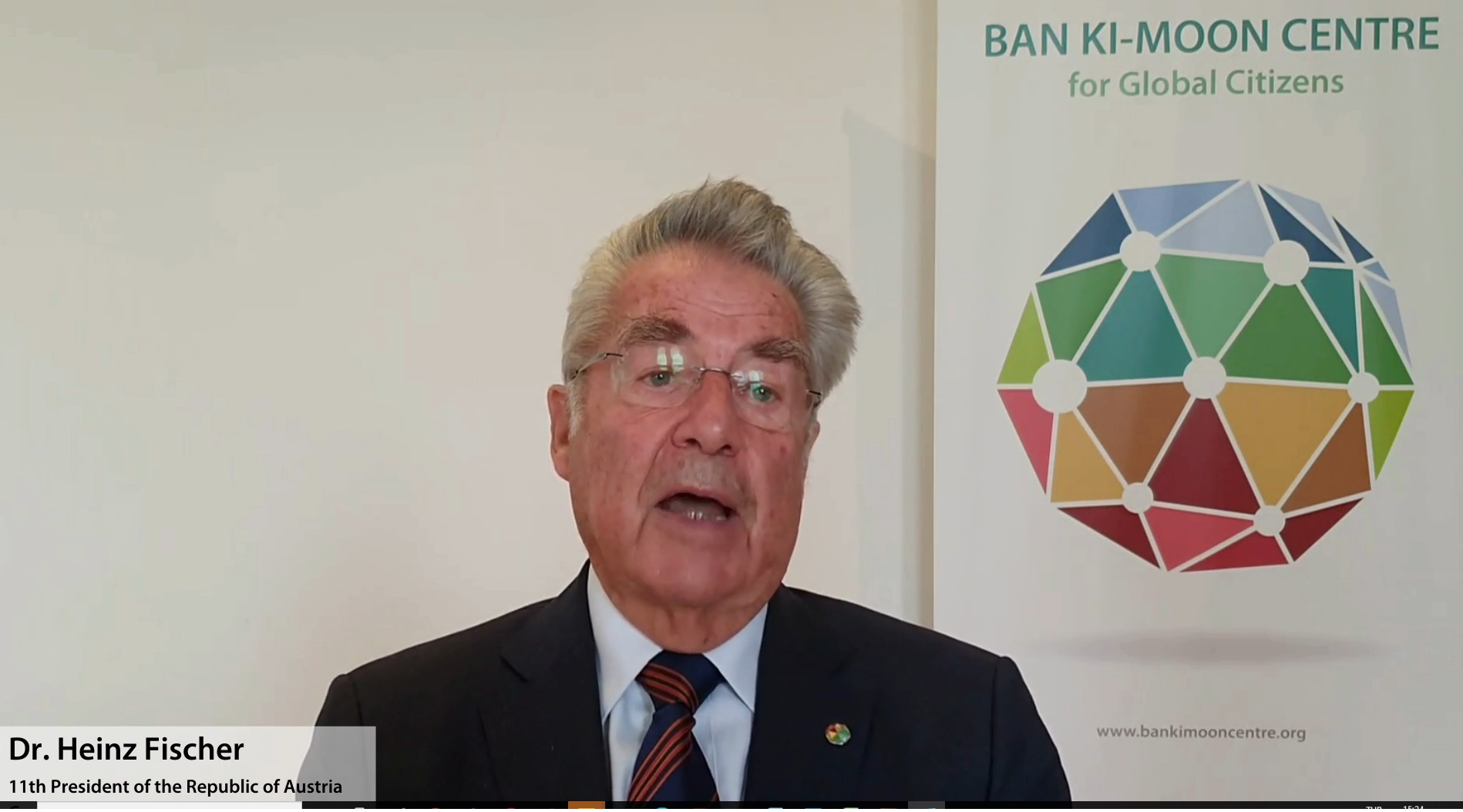
Former President of Austria, H.E. Heinz Fisher mentioned the results of World War II and stated that: “World War II - with 60 million people killed in the so-called “total war” (as Hitler and Goebbels called it), with the Holocaust and finally the use of nuclear weapons in Hiroshima and Nagasaki - was the most brutal period in modern history. It created a deep and lasting shock and – as a consequence – a strong and lasting quest for peace, human rights and international cooperation. This constituted an essential part of policymaking in the following decades: the United Nations and the Council of Europe were founded, the European cooperation was progressing, peace and security institutions were established, the number of democratic states was rising, etc.
But two or three generations later, the lessons learned by history seem to gradually fade away.Military force is re-emerging as an instrument for problem-solving on the national and international levels. International cooperation is becoming weaker instead of stronger and we have no reasonable answer to the growing number of refugees and migrants. We are on the way to a world order with reduced stability and egoistic competition.”
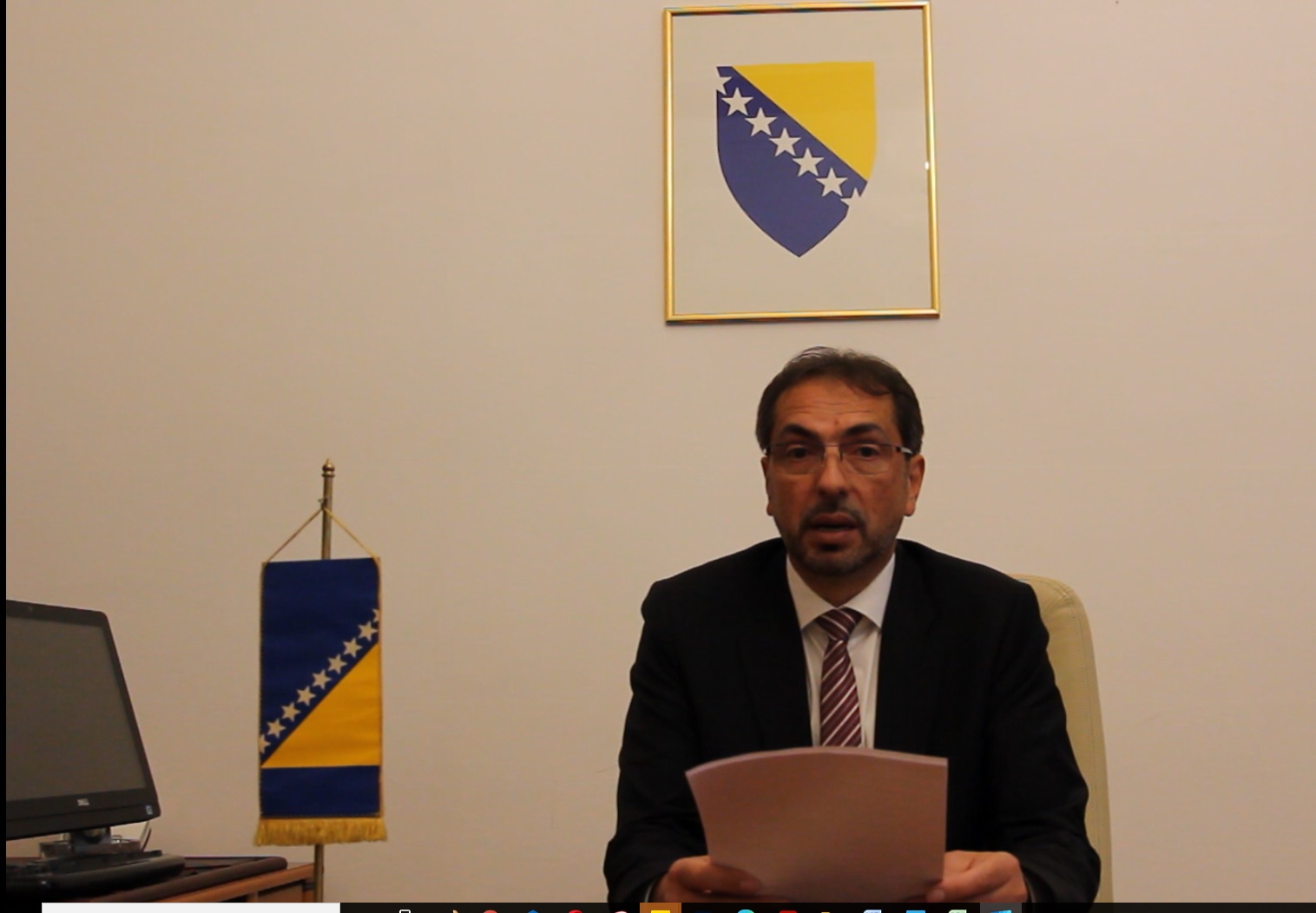
President of the Federation of Bosnia and Herzegovina, H.E. Marinko Cavara stated in his speech that “It is obvious that there have been changes in the world order and in the relations of the world major factors. According to the law of dialectics, everything is in motion and that the disappearance of one form gives birth to another, we hope with as little shock as possible for humanity. The solutions are never easy or fast, it takes courage and perseverance of both individuals and collectives. And.. or..the restart of collective consciousness?And what could be the solutions?To act without the delay and evasion, at all levels, locally, regionally, and globally and each in accordance with own competencies, and yet continuously look for ways of what, how, and how much we can work together.To value every human being, and if we have not yet realized that we are all equally vulnerable, COVID-19 has shown us this in a very simple way. We must preserve the human values of humanity if the system of a state fails.Until we build humanity without greed for power, we must keep building and maintaining a balance of powers and strive for a lasting peace as the foundation of the survival and general progress of humanity.”
Former President of Bosnia and Herzegovina H.E. Mladen Ivanic, emphasized the effects of the coronavirus and stated that “The world was divided even before the corona-virus. But the coronavirus is even more divided. It is clear that a lot of difficulties in poor countries. And they cannot fight so easily with corona. Richest countries, they have more revenues and they have more solutions. They are a bit selfish in the fight against corona. They are thinking much more about themselves than about the rest of the world.We can win in this battle only if we are united. In hope of this division of the poor and the rich countries will be eliminated relatively soon. Because it is the only way to win. And that division is also a big problem for the modern world and modern society. And we have to fight with that to make huge pressure on the rich countries do not continue to be selfish and not to deal with the corona only within their borders. We have to be again united.
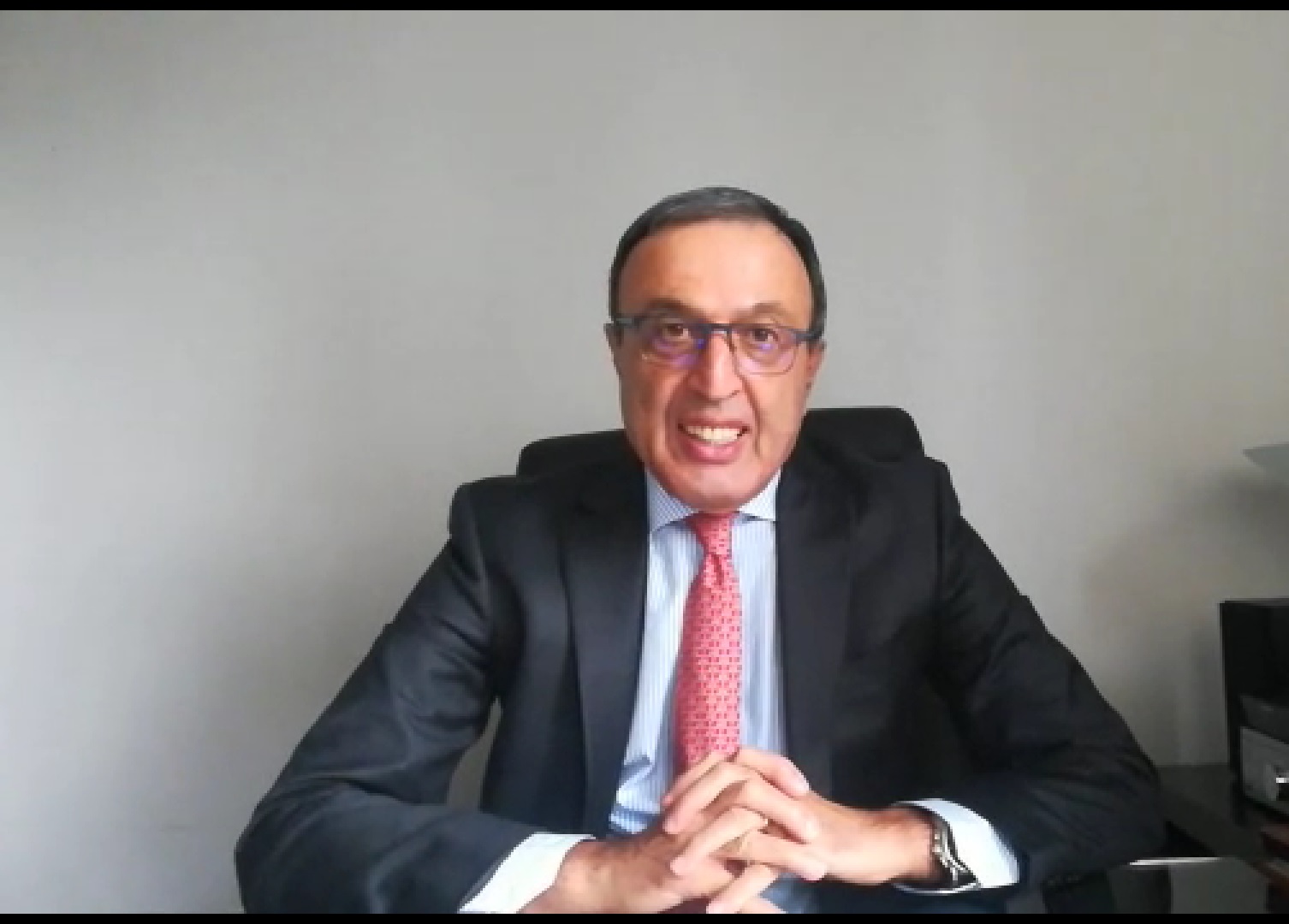
Former President of Bulgaria, H.E. Petar Stoyanov expressed his opinions on remedies of Covid-19 crisis: “In my opinion, the most important conclusion that needs to be drawn is that we must not only find the rescue vaccine against Covid -19 and transform our healthcare systems, but we must also transform our economies, our political views and even our culture. The bad news is that we have to do this very quickly and decisively. And this requires not only huge financial resources and political will, but something much more - the ability to look beyond today.Usually, when we discuss the global pandemic and the difficulties it creates for all societies and countries, we are reassured that with the efforts of governments, medical authorities and all of the citizens of our planet (and why not because of the discovery of an effective vaccine too), we will eventually be back to the time before Covid-19. The question I want to ask, however, is: after so much sacrifice and suffering during Covid-19, do we really want to go back to THAT TIME before it? If this is the case, it would be a pity. Maybe we have to look at that time with a critical eye, and using the lessons of the Pandemic to rethink the way we lived before Covid-19. The global pandemic must give us new starting points for reflection in order to change many of our political and human habits.”
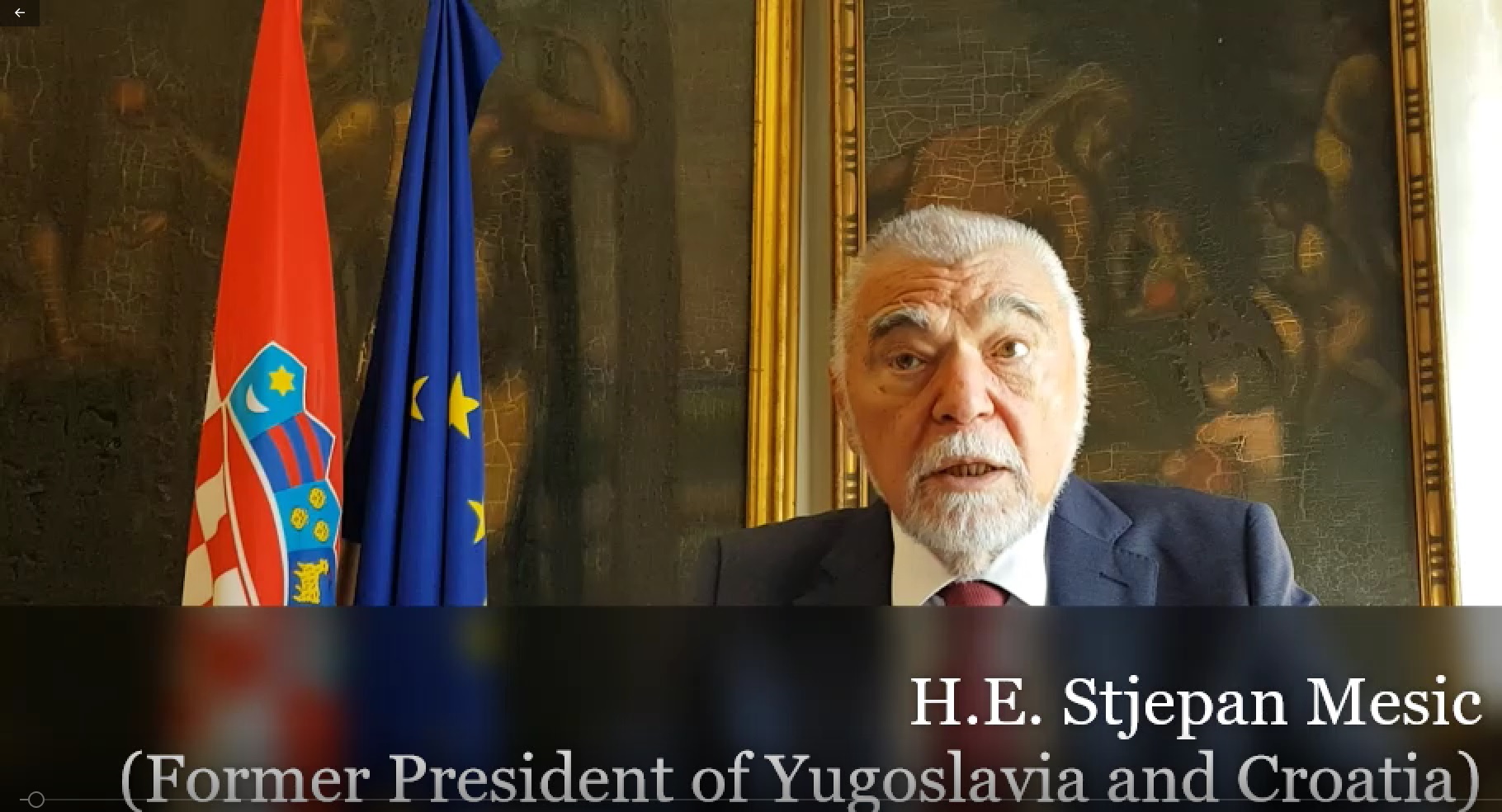
Former President of Croatia, H.E. Stjepan Mesic expressed his opinions on the new reality after coronavirus: “It is important to understand that the new reality is not temporary. The way of “doing things” which is not even a year old now, is destined to fade into memory. Neither a cure nor an effective and safe vaccine that may be administered globally will bring the old back. Return to life as we knew it before the pandemic is not possible, the new reality is here to stay. This state will be continual, achieving future progress will need to be within this new framework. For this reason, the new framework also requires newly developed concepts to be applied in various areas and disciplines, like health, economy, education, culture, sports, and so on: In short, it needs to be applied to almost everything.To succeed we will need to free ourselves from the bondage of past practices, and again this applies to almost everything. We must learn to think differently, disregard protocols that have regulated behaviors, and with an open mind approach this new situation. It will be challenging, but certainly not an insurmountable challenge. However, facing this challenge requires moving away from the rhetoric which now can be heard louder and louder in many countries: “We are tired of this, no one has the right to restrict our freedoms, we want to live and behave as we lived and behaved before the pandemic.”
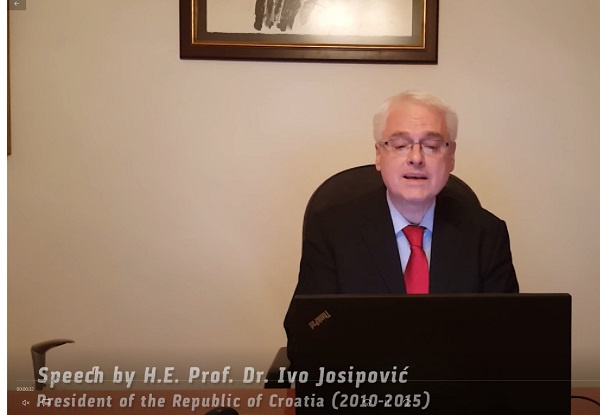
Former President of the Republic of Croatia, H.E. Prof. Dr. Ivo Josipovic emphasized the role of international organizations and stated: “The role of the European Court of Human Rights has so important a role in the unification of human rights standards at least in Europe and a part of Asia. The African and American Court of Human Rights also has an importance on the development of human rights.Strengthening economic cooperation of states and liberalization of international economic relations and trade supported by the important role of international regulatory bodies, especially the World Trade Organization. And the anti-corruption bodies have to establish the global world more trust on an equal basis for all participants. It should be noted as a significant phenomenon small or lots of small new economic targets, not only local or regional but on the global scene as well. Also, it is necessary to know the strength of some African states and increase solidarity, cooperation, and self-confidence in the economic but also political scene.”
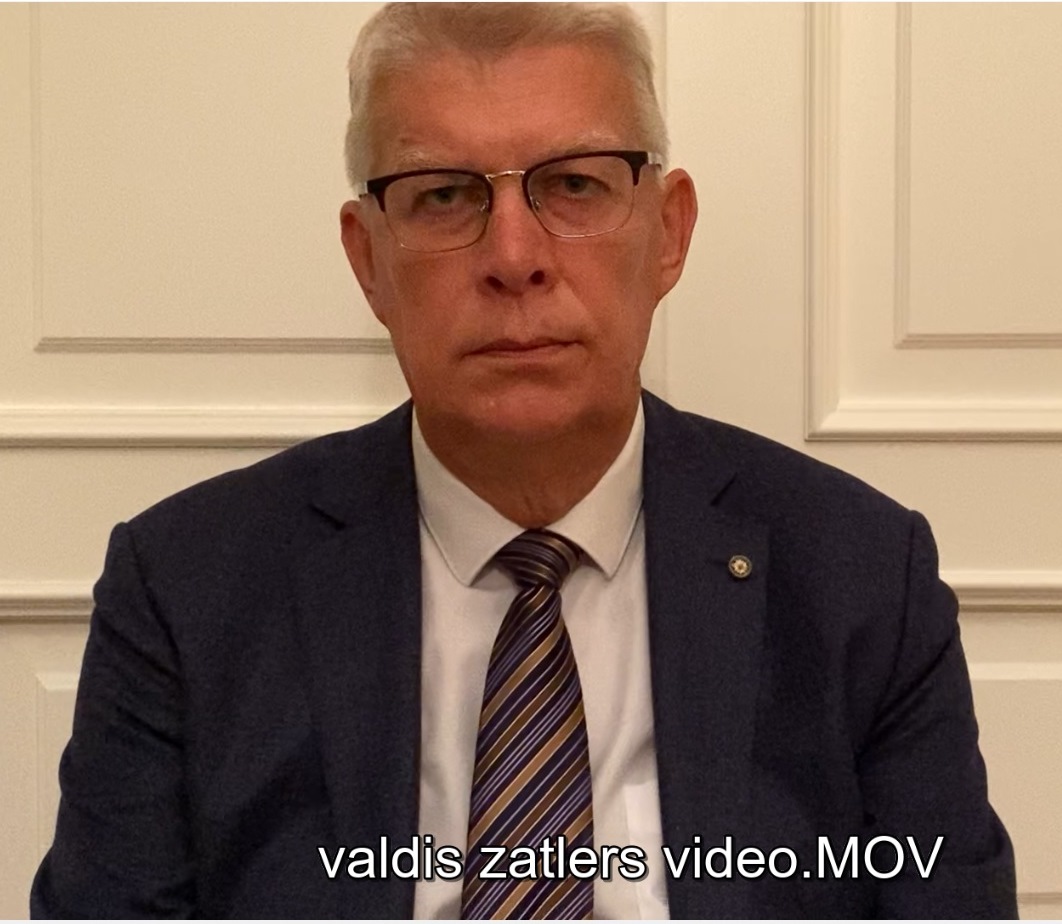
Former President of Latvia, H.E. Valdis Zatlers, emphasized the importance of leadership in the world: “Covid-19 has changed a lot. The consumption habits have been changed, the production habits have been changed, and the supply chains are changing. Personal and collective behavior especially in public places have been changed already. We live in a different world. But if you want to create a true multilateralism which is based on the principle of rule of law, we have need some leadership. Today we don’t see this leadership.European The union is not ready. Not because it is not a good example of multilateralism but it is just not ready to be a global leader. The United States has put itself first. China is willing to lead the global processes but it is not doing yet. So there is a real necessity for global leadership. Multi-polar, multilateral, global leadership. And this will happen we wanted or not. Because globalization will go on. Only the paradigm of globalization will change.”
Former President of Moldova, H.E. Petru Luchinschi emphasized the importance of the technology: “We believed that science in the second half of the XX and the beginning of the XXI century reached such a peak that it would be easy to cope with such barriers as a viral infection. It turned out not to be so. The leading countries of the world have concentrated on several areas of development and technological progress such as space, IT, weapons, artificial intelligence, and cloning. While the man himself and most importantly his health was left behind. The main funding went into armaments, the invention of the most destroyers of means for the destruction of man and the material world that he created. After a relative period, between the 70s-80s of the last century, of the destruction of the most formidable types of nuclear weapons, the world together took up onto the manufacturing of more advanced means. For that matter new hotbeds of hostilities began to appear; such as the latest Armenian-Azerbaijani conflict. As a result, a new phenomenon of mass migration has appeared which has seriously changed the relationship between countries, especially European countries.
If the leading countries of the world: G-7, G-20 would offer to reduce the cost of weapons by 30% and direct these funds into the industries mentioned above, then we could say that lessons are being learned and the world is changing for the better. Sadly there are no serious signs for the implementation of such an approach so far.”
.jpg)
Former President of Montenegro, H.E. Filip Vujanovic stated in his speech that “The critics towards international organizations are very clear, but the pandemic has undoubtedly shown us that their role in our global society is irreplaceable. We need a strong United Nations to act successfully on a global level. We need a strong and unified World Health Organization in overcoming this pandemic. We need support from the International Monetary Fund and the World Bank to help national economies to recover and maintain fiscal stability.
We need also, these international organizations to help us fight against poverty, climate changes, human rights, for affirmation of democracy, peace, and security – basically, for every value of our life.
That being said, this is not a good time to promote isolationism and national interests, but for a global partnership for common good. During the last 70 years, we have been building a deeply connected and interdependent global society which should be a guarantor for overall development.”
.jpg)
Former President of Macedonia, H.E. Gjorge Ivanov handles the current situation in a philosophic way and stated that “Many countries will encounter hardships recovering from the pandemic. Accordingly, the number of weak, unsuccessful, and failed states would increase. At any rate, the world will be less open, less prosperous, and less free after Covid-19. The outlines of that new world are slowly becoming visible, but its birth will probably be a long, hard, and bloody process involving great spiritual confusion.
Ancient philosophers, Plato especially, teaches us that in such times of crisis the most important thing to a community in solidarity and friendship among people, but also with nature. On several occasions, Plato teaches that the human soul possesses what he called thimos, something that gives people the capability to be indignant before injustice and before the fear of losing one’s life. This audacious emotion, that is, extasy, may spur the desire for survival and mobilization that might save the community. Let us hope that many of us, in spite of everything we went through in 2020, is developing awareness of their own thimos, which would grow into our common civilizational thimos.”
.jpg)
In his speech, Mustafa Akıncı, the President of the Turkish Republic of Northern Cyprus, briefly: "- Rich countries both gave the necessary support to their financial systems and announced huge economic recovery packages in order to overcome the deep economic recession they were experiencing. Despite these, it is obvious how successful they are in getting out of the crisis. Emerging market economies and developing countries with much fewer resources are not able to do this enough, and they also experience serious foreign capital outflows from their markets. As a result, unfortunately, the lives of millions of children, women, and men in these countries facing severe hunger are in danger.
UN Secretary-General António Guterres stated that "Covid-19 is the biggest test faced by the international community since the establishment of the UN". Undoubtedly, the international community, and even humanity, is going through a serious test. What do we have to do to successfully pass this exam?
First of all, we have to act in international cooperation and solidarity and overcome this pandemic. We must control the spread of the Covid-19 virus. For this, we must give the greatest support we can to multinational efforts to prevent the spread of the virus, which are carried out under the leadership of the World Health Organization. In the search for vaccines and effective treatments, we should not be in ruthless competition, but scientific cooperation and ensure that everyone benefits from the vaccine and treatment to be found. We should encourage everyone to adopt human-oriented approaches by respecting the human rights of people and societies affected by Covid-19, without excluding anyone, without damaging their reputation and observing gender equality. " said.
Former President of Romania and the President of ISACCL, H.E. Emil Constantinescu emphasized our duty in the post-covid new world: “The post-pandemic world will know new roles for people and for states, roles that will prove challenging to manage. It is our duty as former heads of state and government, members of the academic milieu, researchers, doctors, engineers, and business people to contribute to the shaping of the post-pandemic world. We know what we have, and we know what we still need in terms of infrastructure, yet less so in terms of know-how and a strategic vision.
The first two decades of the 21st century have marked the transition from the unipolar the world created after the end of the Cold War to a multipolar world with a chaotic periphery, which reactivated many frozen conflicts. The third decade of this century will need to take into account the increasing withdrawal of the United States and of the United Kingdom from the globalization process whose end was foretold in a recent analysis by Deutsche Bank, which also discusses the changes that the Millennial generation will bring at the political, economic and social level.”
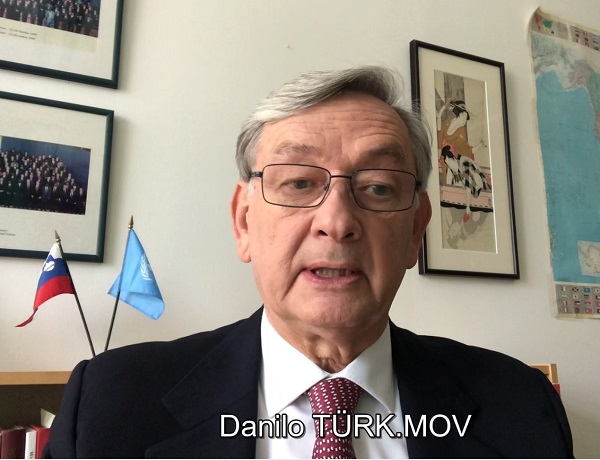
Former President of Republic of Slovenia, H.E. Danilo Turk emphasized the notion of security and stated that “The pandemic taught us about the vulnerability of every society. And the dangers of the fort lines that exist within societies. In the long-term, the vision of security must differ, include reduction of vulnerability of individuals and their communities, and improve the resilience of societies to shock such as the one caused by the Covid-19 pandemic.
Re-conceptualization of security is becoming a priority. Inter-state aspects of security are no longer enough. Serious steps are necessary for Human Security. A security that will include better protection of people from infectious diseases, environmental disasters, and other threats. This is an important task for which the time has come. There has been much debate about Human Security in the past, including in the United Nations. Now is the time to think about human security everywhere in every society.”
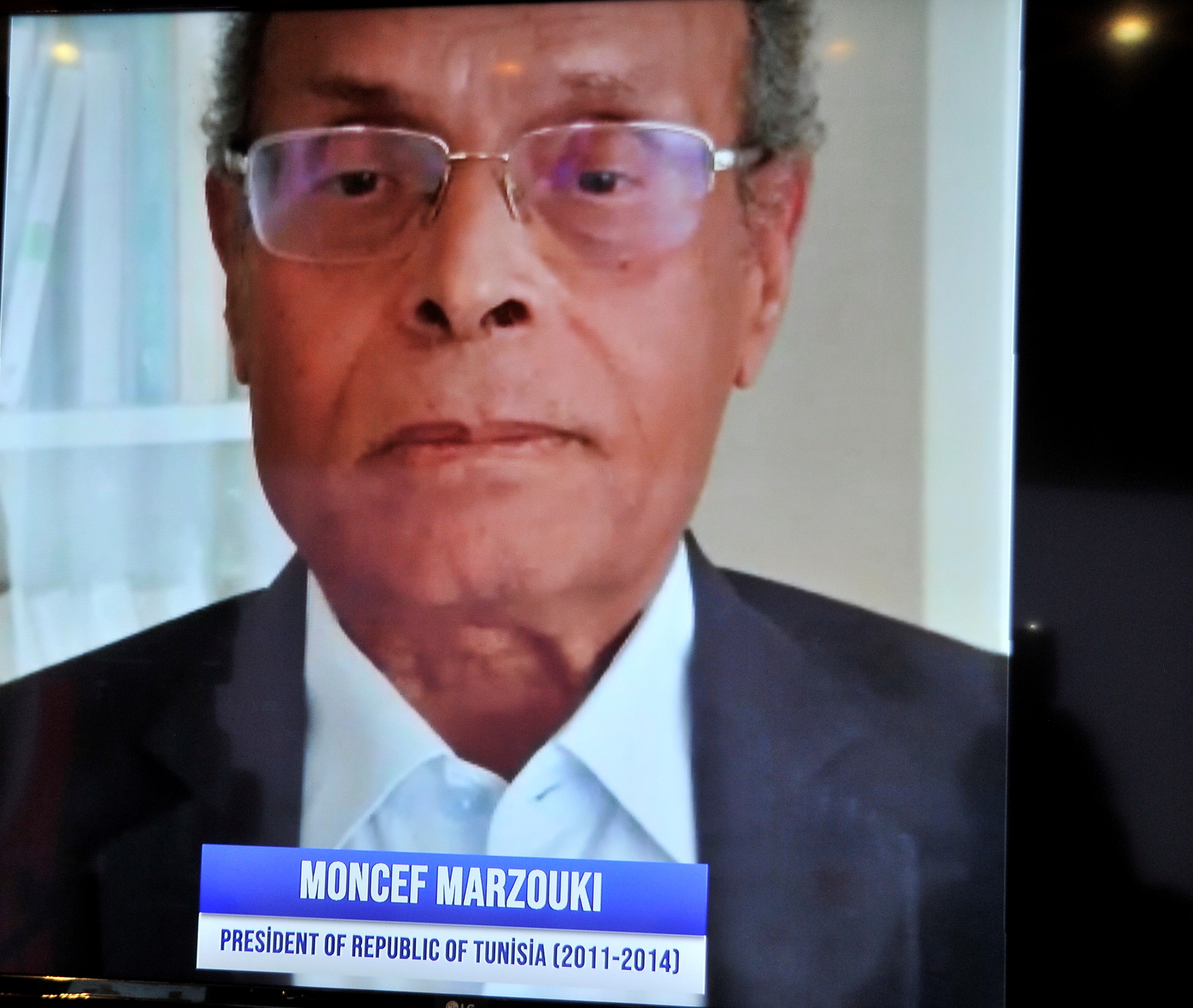
Former President of the Republic of Tunisia, H.E. Moncef Marzouki about the pandemic that “Today we are all worried about the future of the pandemic and about the likelihood of returning to the situation that we qualify as normal.
We do not know when the pandemic will end. Some say in 2021, others in 2022.
We are worried about the economic situation and the possible collapse of certain economic sectors such as services, air transport, tourism essential to so many countries including mine Tunisia. If we have more or less complete figures on the health and economic impact of Covid-19, we have on the other hand very little data on the impact of the pandemic on the morale of peoples and individuals.
It’s very important to address this third impact of the pandemic with the same determination as to the one we have in the fight against health and economic damage.”
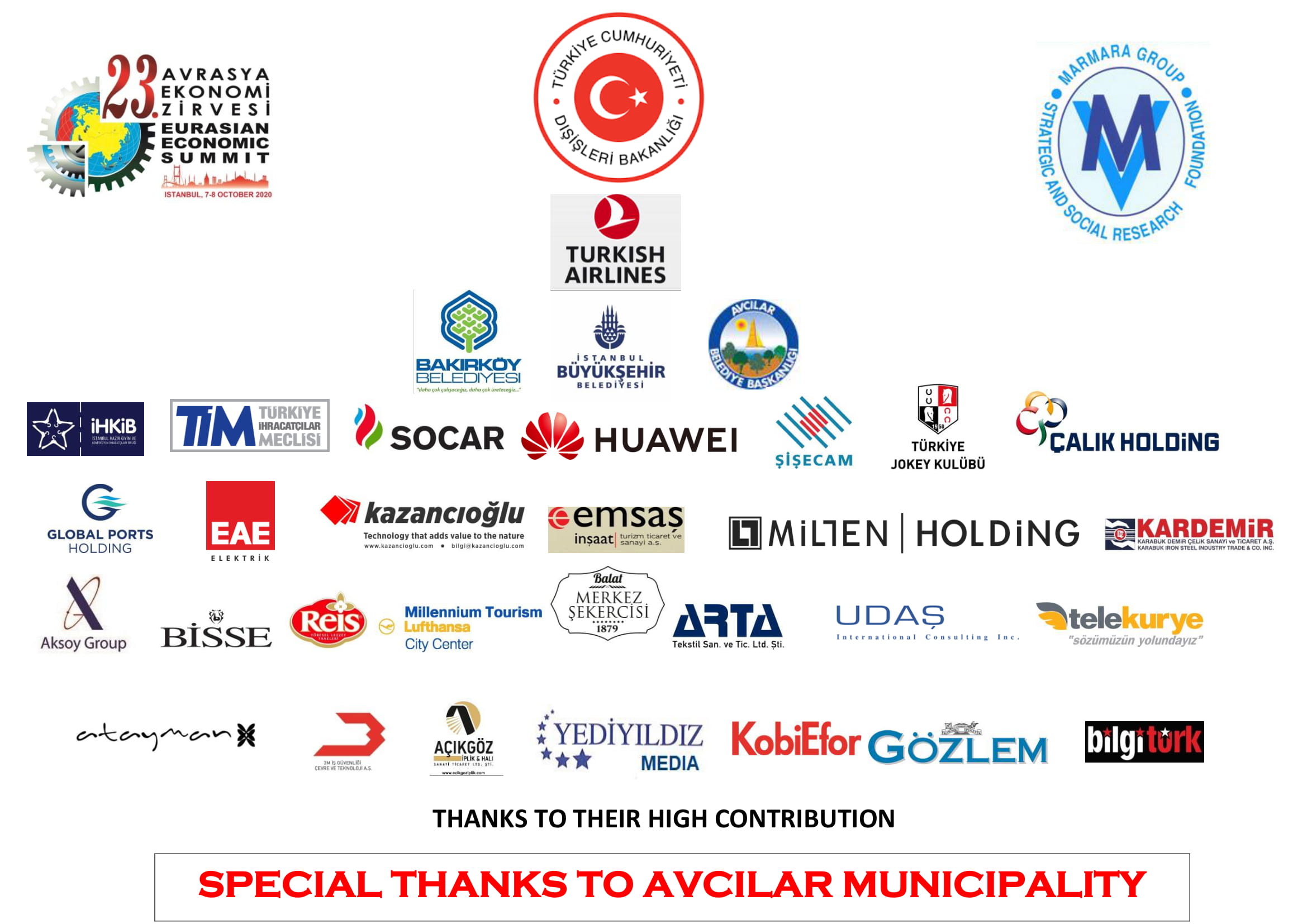
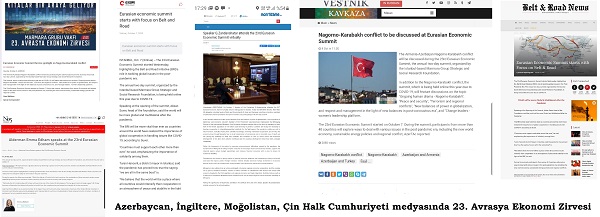
.jpeg)
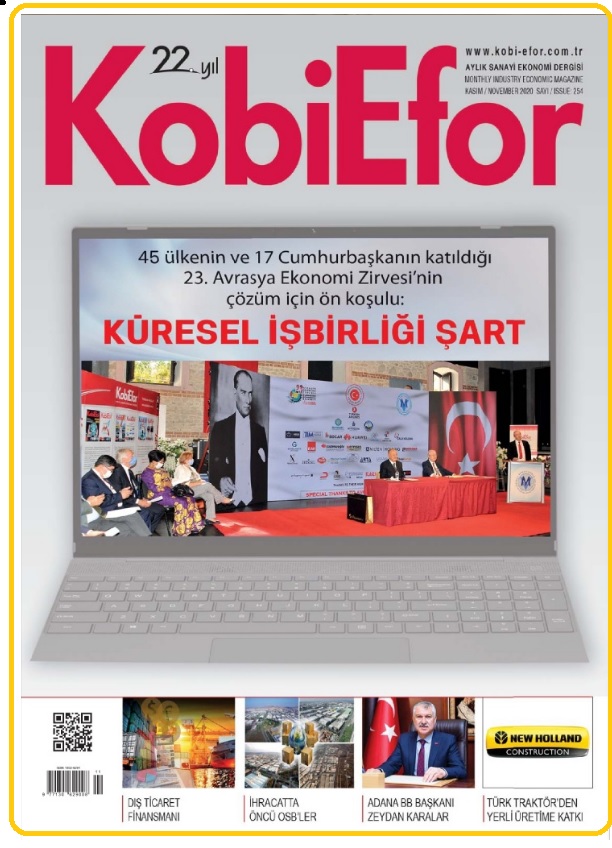
https://www.kobi-efor.com.tr/


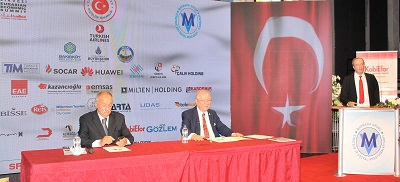
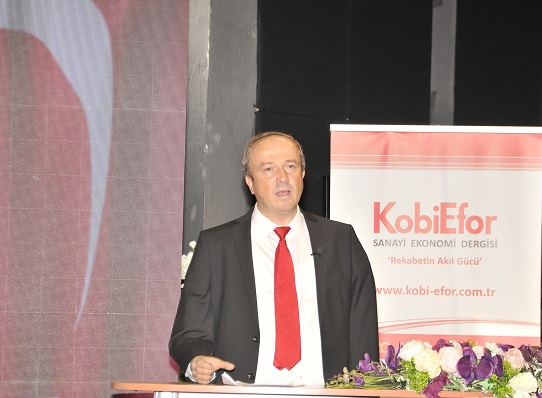
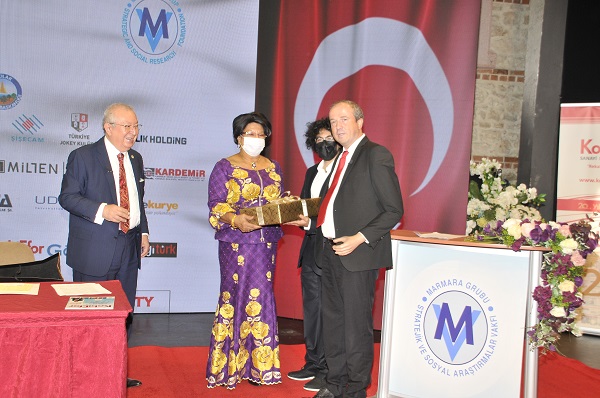
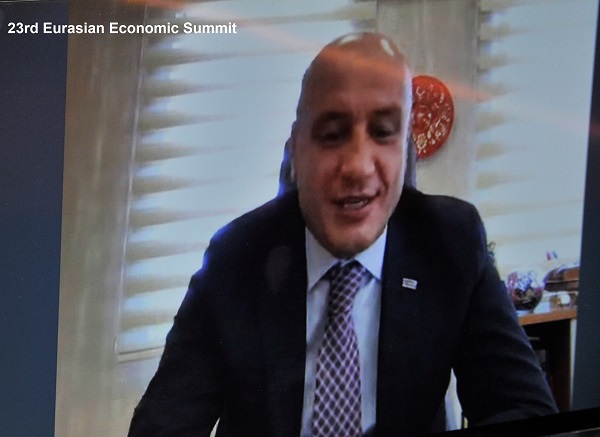
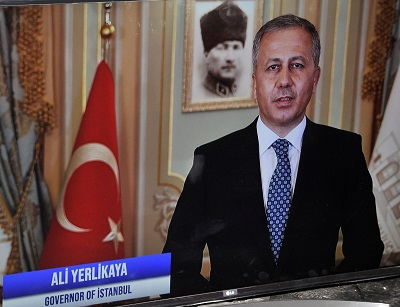
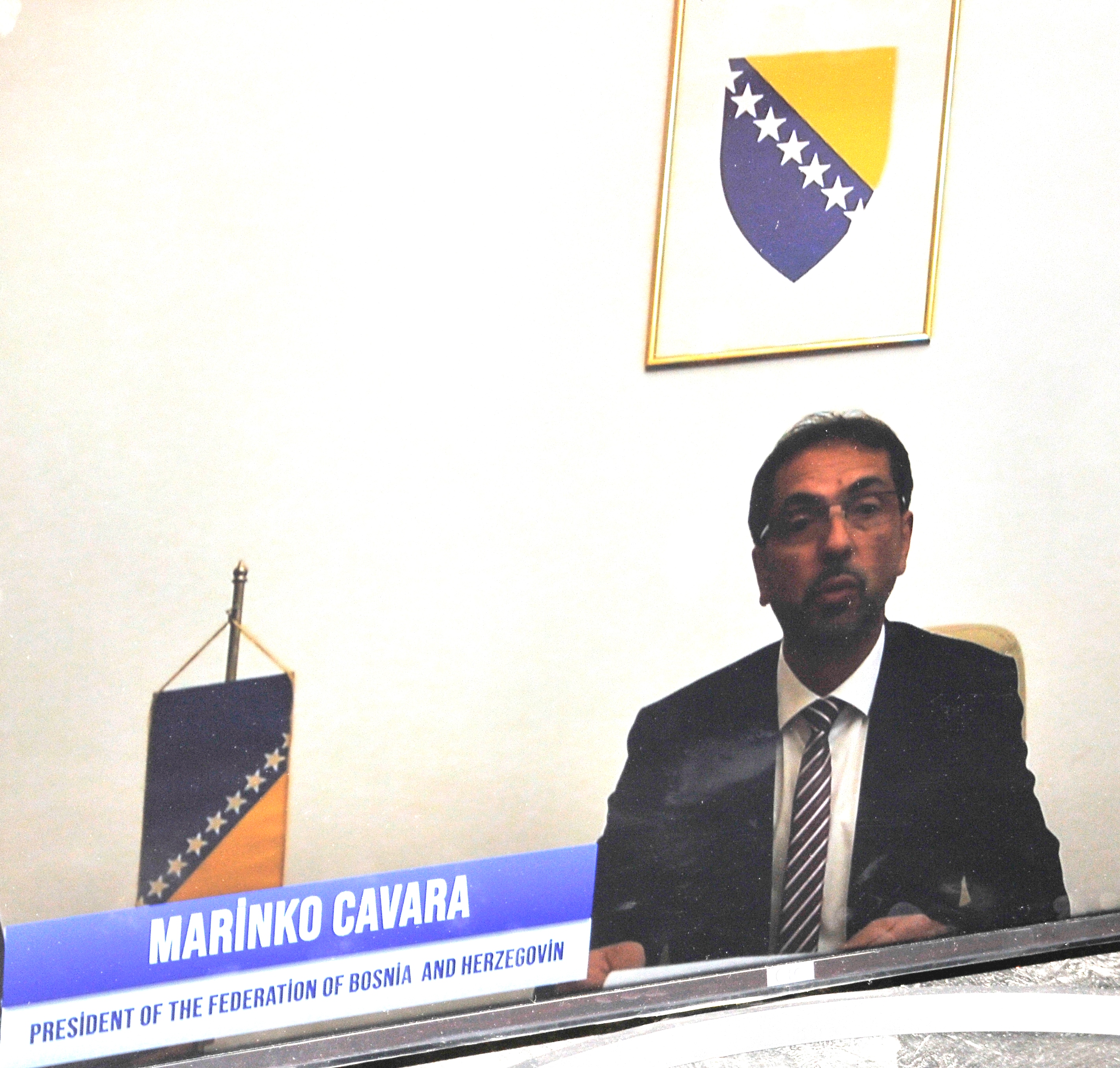
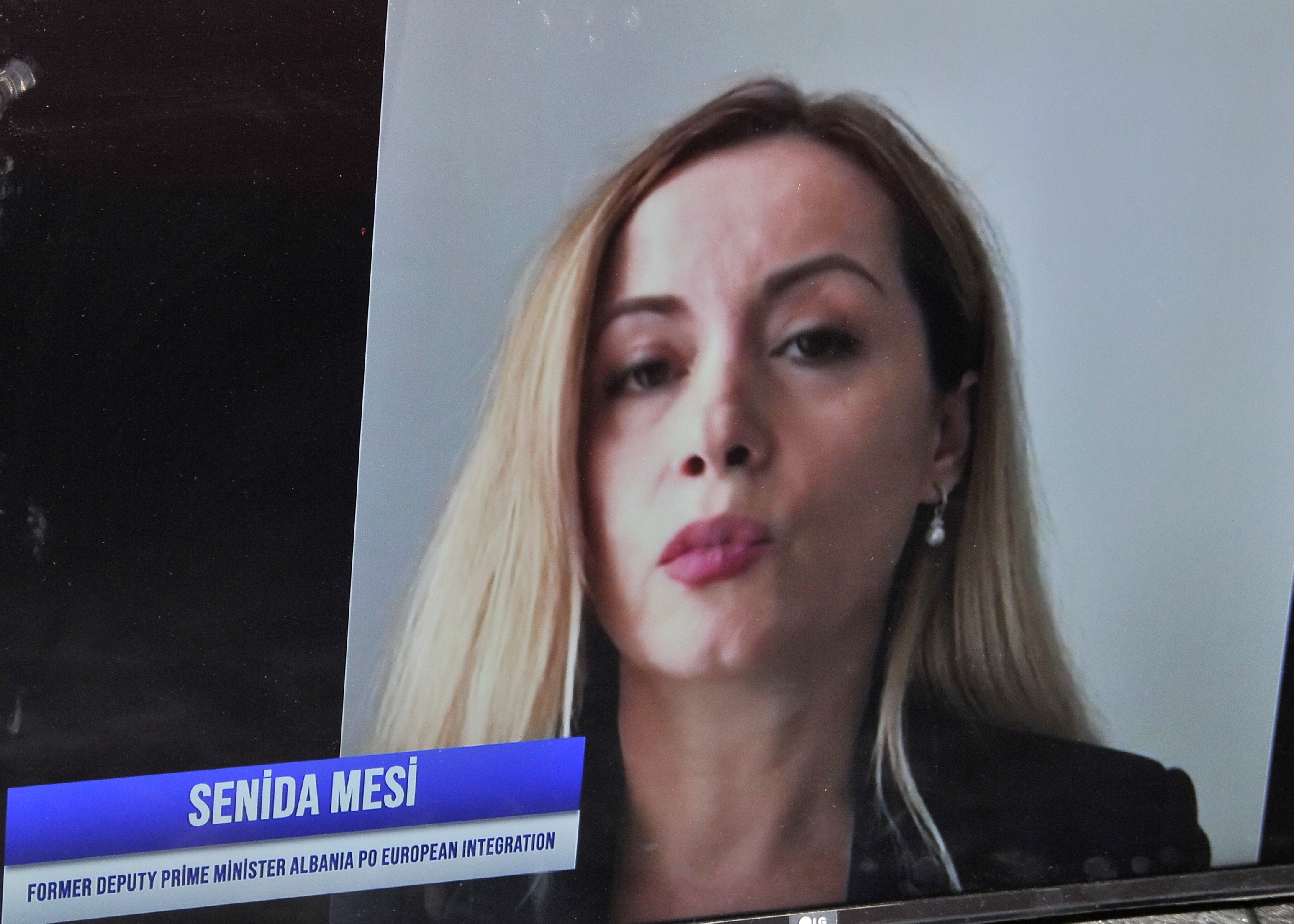
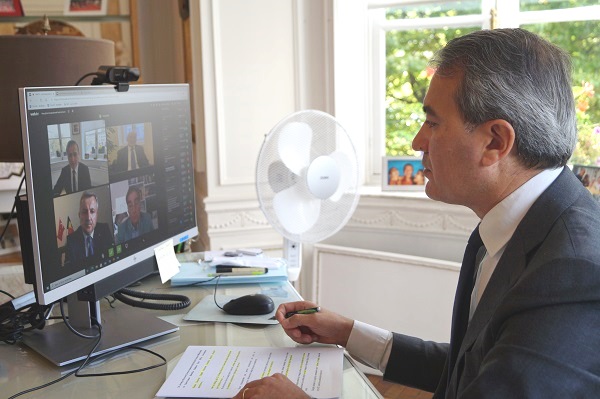
 - Kopya.JPG)
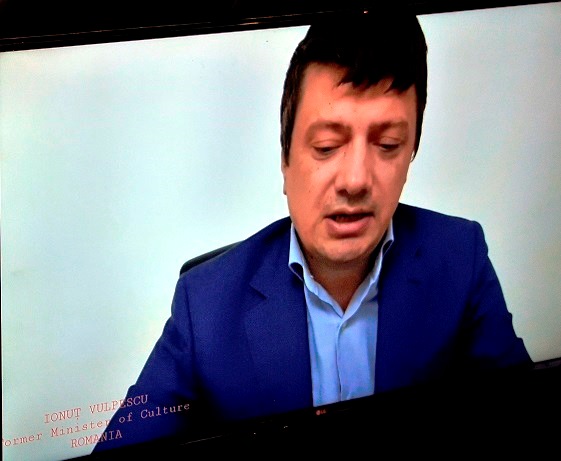
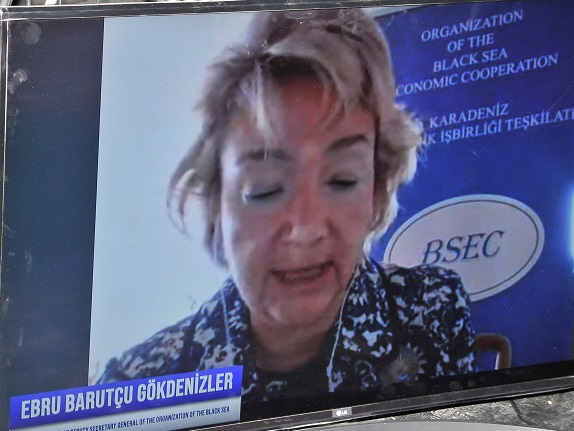
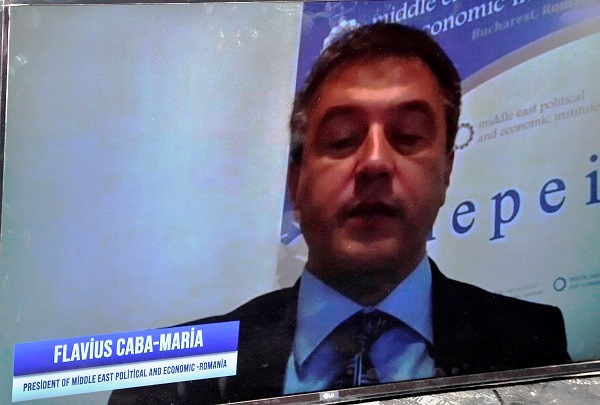
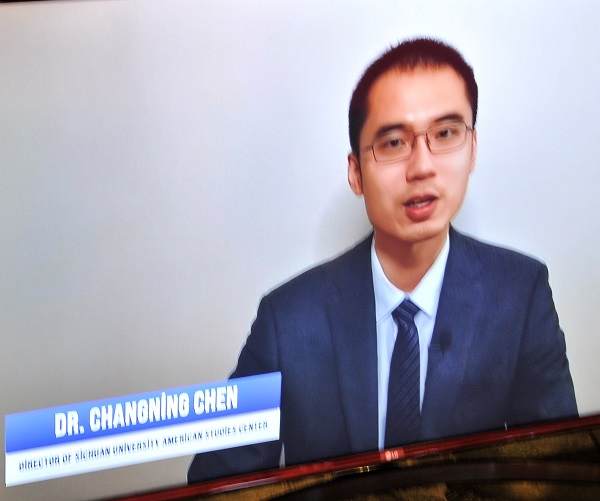
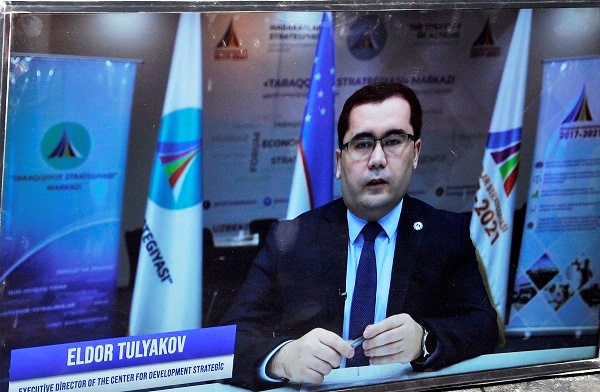
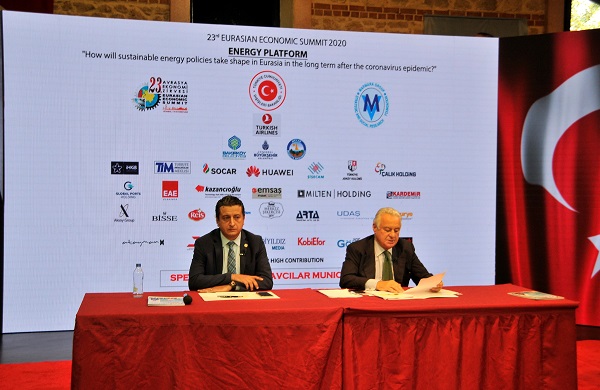
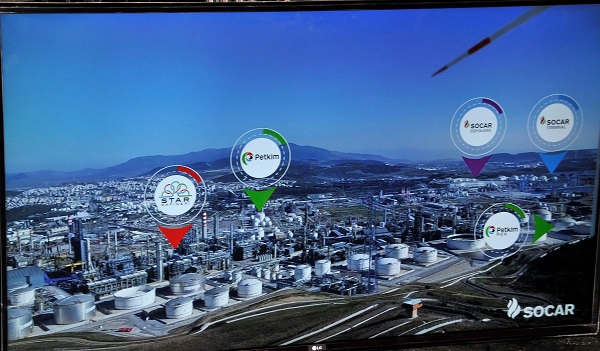
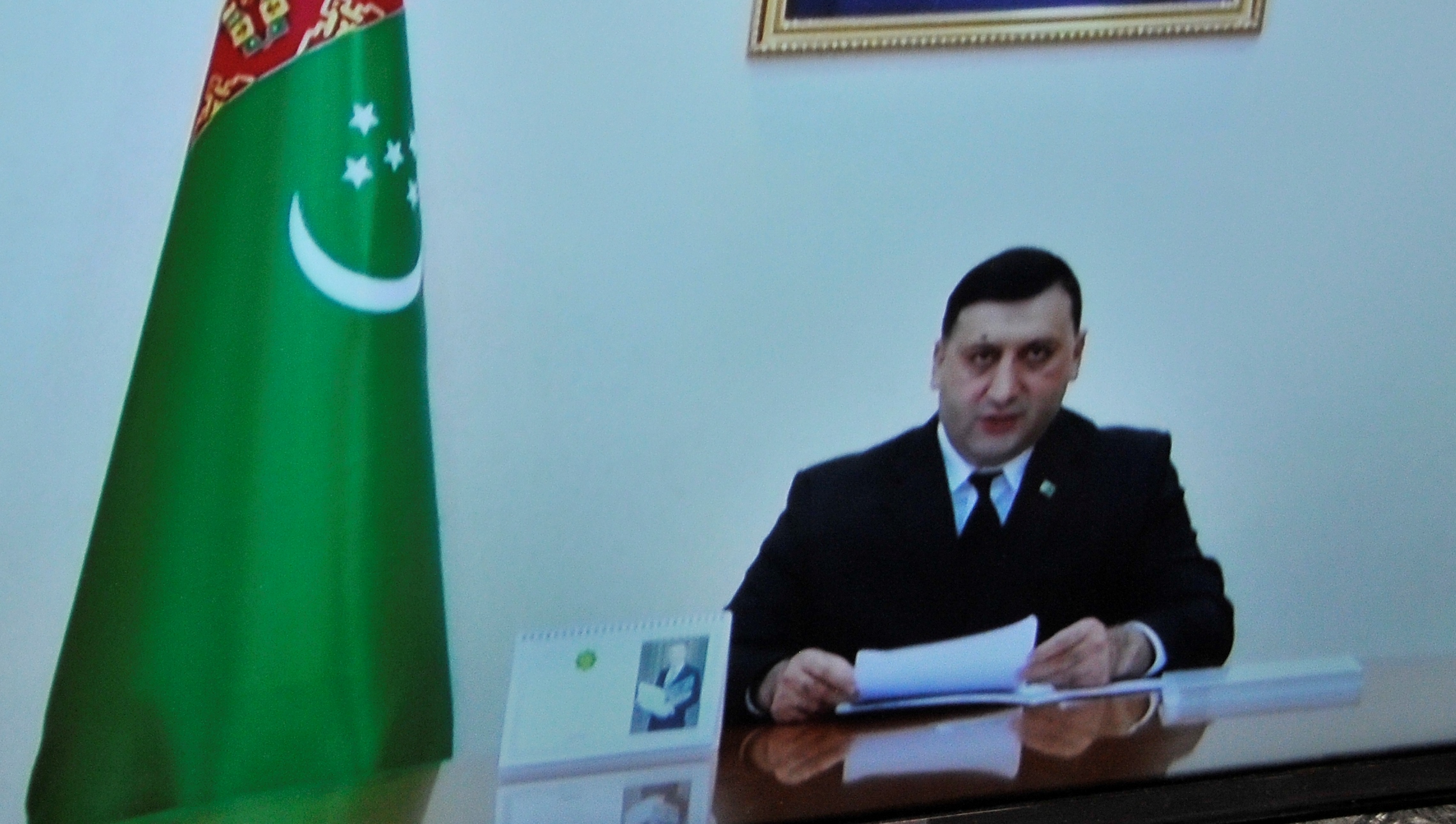
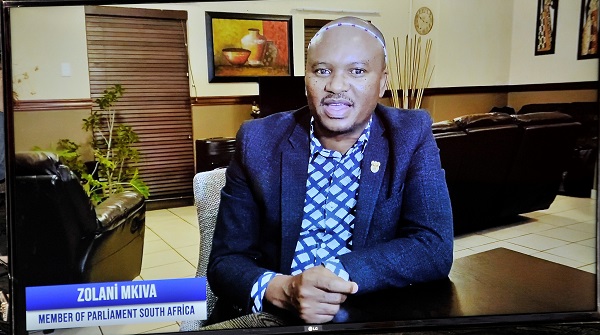
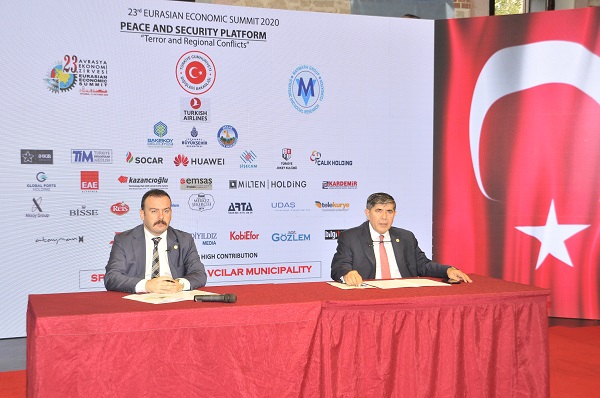
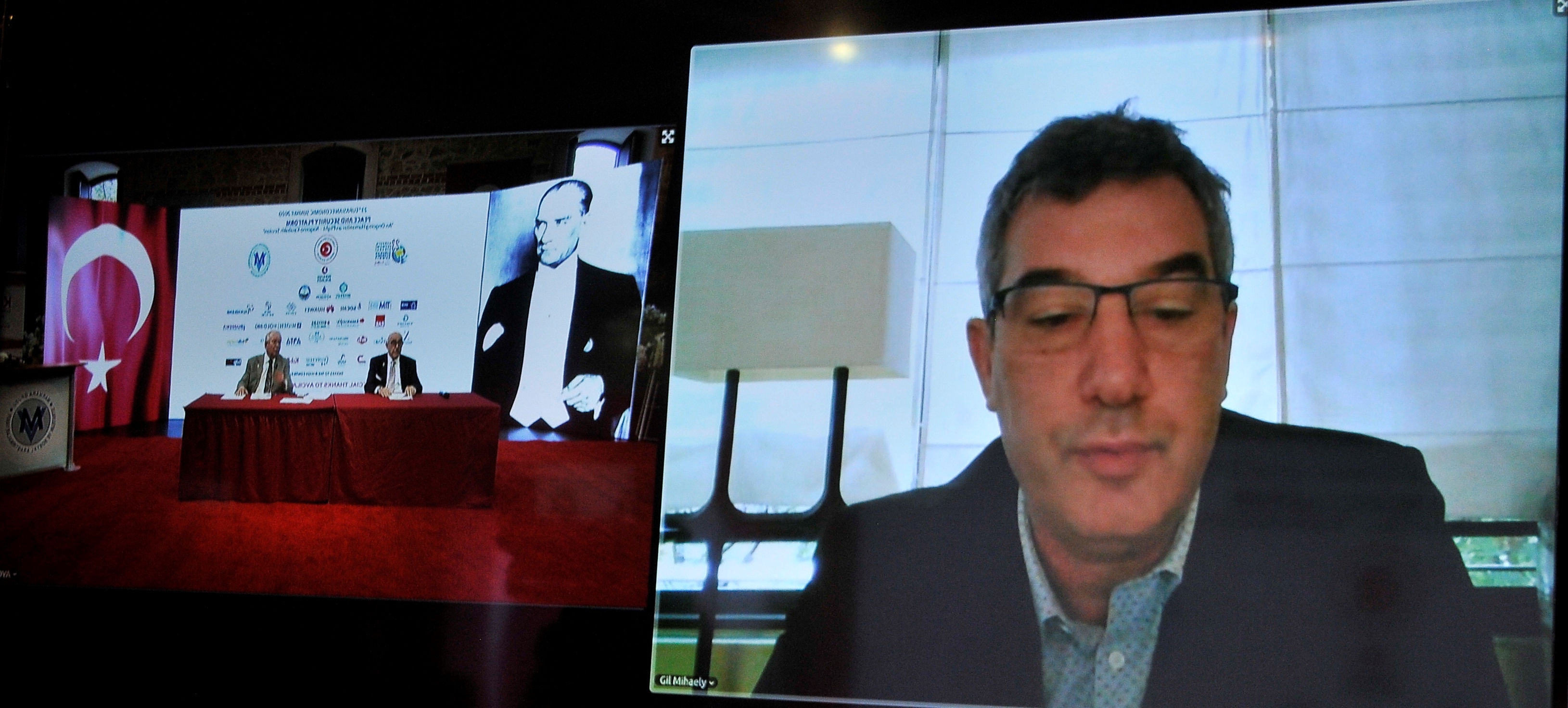
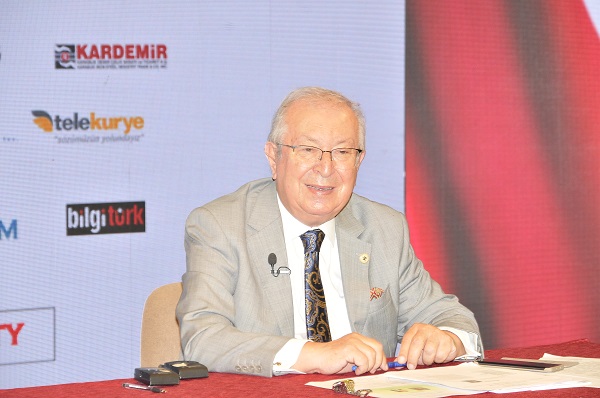
.jpg)
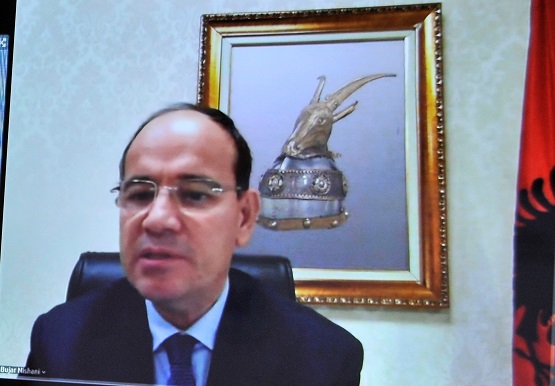
.jpg)
